The History and Tradition of Beer Kellers in Franconia
Franconia, a region in northern Bavaria, Germany, is a place where time seems to stand still, especially when it comes to its centuries-old brewing traditions. One of its most cherished institutions is the "Bierkeller" or beer cellar. These establishments, often nestled into the side of a hill or beneath the ground, have a rich history that speaks to the heart of Franconian culture. Here, we'll delve into the history and tradition of beer kellers in Franconia.
Origins of the Bierkeller
Beer has been brewed in Franconia for over a thousand years. The region boasts some of the oldest breweries in the world, many of which are family-owned and have passed down their brewing secrets through countless generations. The concept of the beer cellar originated from a practical need. Before the invention of modern refrigeration, brewers in Franconia had to find innovative ways to keep their beer cool during the warmer months. Their solution? Dig deep into the earth.
By excavating cellars and tunnels into hillsides, brewers could store and mature their beer at consistently cool temperatures. Over time, these cellars expanded, becoming large underground complexes that could hold thousands of liters of beer.
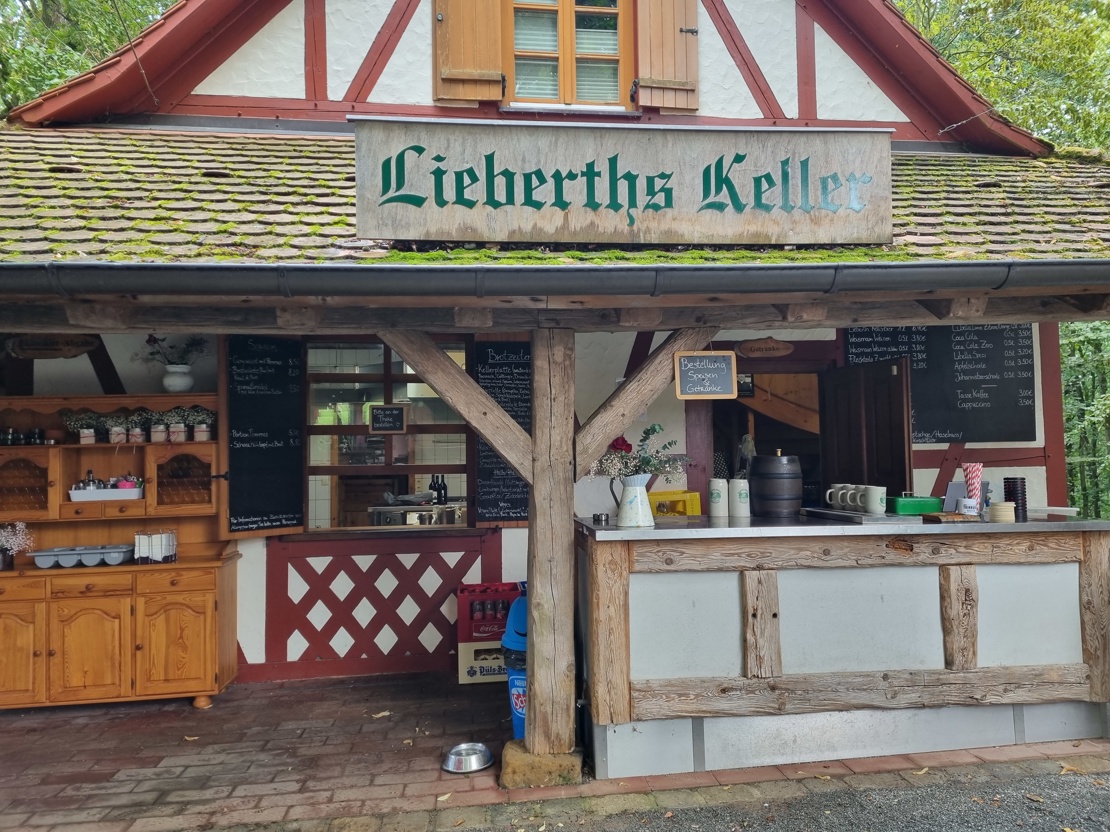
Lieberths Keller, Kreuzberg (Hallerndorf)
The Social Evolution
As these cellars expanded, a curious transformation occurred. In January 1812, when Maximilian I (prince-elector of Bavaria) enabled brewers to sell their newly lagered brews in their gardens, it marked the inception of the bier kellers we're familiar with today. For the brewers it combined a fresh offering with simpler logistics. Firstly, the brewers did not have to transport the barrels back to the inn. Secondly, the location of the kellers on the outskirts of the villages, in cool grove forests or slightly elevated on mountain slopes offered the opportunity to open shady beer gardens, which on hot days provide natural cooling and a pleasant stay outdoors. Above these cellars, brewers set up simple seating areas with wooden benches and tables, shaded by chestnut trees, which became the ideal spot for the community to gather, socialize, and of course, drink freshly tapped beer. That's why Franconians, don't say they go in den Keller (into the cellar); they say they go auf den Keller (on top of the cellar).
The beer keller became a focal point of Franconian social life. In a world without television or the internet, these cellars provided a place for people to come together, share stories, celebrate events, and bond over a shared love of beer.
Traditions of the Beer Keller
A visit to a Franconian beer keller is a unique experience. Here, tradition takes center stage:
-
Simple Fare: The food at a beer keller is hearty and rustic. Expect sausages, brezel (pretzel), schweinshaxe, schäufele, kalter braten, cheeses and regional specialties that perfectly complement the beer
- Food with the family or friends Today, while many beer kellers have expanded their culinary offerings, the tradition of bringing one's own food remains alive in many places. Of course, etiquette dictates that one should always check with the establishment first, as rules can vary. In some places, it's common for patrons to buy a small item (like a brezel) as a courtesy, even if they bring their own meal.
It's a tradition that beautifully encapsulates the spirit of Franconia's beer kellers: unpretentious, communal, and rooted in a deep sense of history and place.
-
The Krug: Instead of a typical seidla (pint) glass, beer in Franconia is often served in a stoneware mug known as a "krug." These mugs are not only traditional but help keep the beer cooler for longer. It's a good idea to bring a wooden lid or get an additional coaster to prevent tree droppings and insects ending up in your beer.
-
Community Tables: At many beer kellers, seating is communal. You might find yourself sitting next to a local family or a group of friends. This setup encourages conversation, fostering a sense of community and camaraderie.
- The Beer: The traditional beer is mostly Kellerbier also known as Zwickl and Landbier. Kellerbier is generally unfiltered and can range from slightly hazy to fairly cloudy, depending on the brewery's intention and length of lagering. Its color can vary from pale to amber. Due to the lack of filtration, Kellerbiers retain more of the yeast characteristics, leading to a fuller flavor and body than many other lagers. You can expect a malty, bready backbone complemented by a mild hop bitterness and flavor. The aroma can have hints of yeast, bread, malt, and ranging form subtle to pronounced hops. Generally, Kellerbiers have an alcohol content between 4.5% and 5.5%. Some Kellerbiers still undergo the fermentation and short lagering in the old Kellers.
-
Seasonal Brews: Many kellers offer seasonal specialties, such as the "Bockbier" in spring or autumn, providing unique tastes that can only be experienced during certain times of the year.
Opening Season of Beer Kellers
-
Spring Opening: Most beer kellers start opening in April or May, coinciding with the pleasant spring weather. This is also the period when many breweries introduce their Maibock, a type of strong lager traditionally brewed for spring consumption.
-
Summer Peak: Summer is the high season for beer kellers. With the longer days and warm nights, these venues become popular spots for both locals and tourists to gather, socialize, and savor a cold beer under the shade of the chestnut trees.
-
Autumn Wind Down: As the summer heat wanes and autumn starts, many beer kellers remain open, but their hours may begin to reduce. By late September or October, as temperatures drop, most beer kellers start wrapping up their season. This period often corresponds with the release of special autumn brews, like the Festbier or certain types of Bockbier.
-
Winter Closure: During the winter months, from late October/November until March/April, most traditional outdoor beer kellers are closed due to the cold weather. However, some larger beer kellers or those attached to breweries might have indoor sections that remain open year-round.
-
Special Events: While the above outlines the typical season, there are exceptions. Some beer kellers might open for special events, festivals, or beer releases outside the regular season. For instance, Starkbierzeit (Strong Beer Festival) in late winter or early spring is a time when some beer kellers might have special openings to celebrate strong beers.
If you're planning a visit, it's always a good idea to check ahead. While many beer kellers stick to this general seasonal schedule, individual opening times can vary based on the establishment, local traditions, and weather conditions.
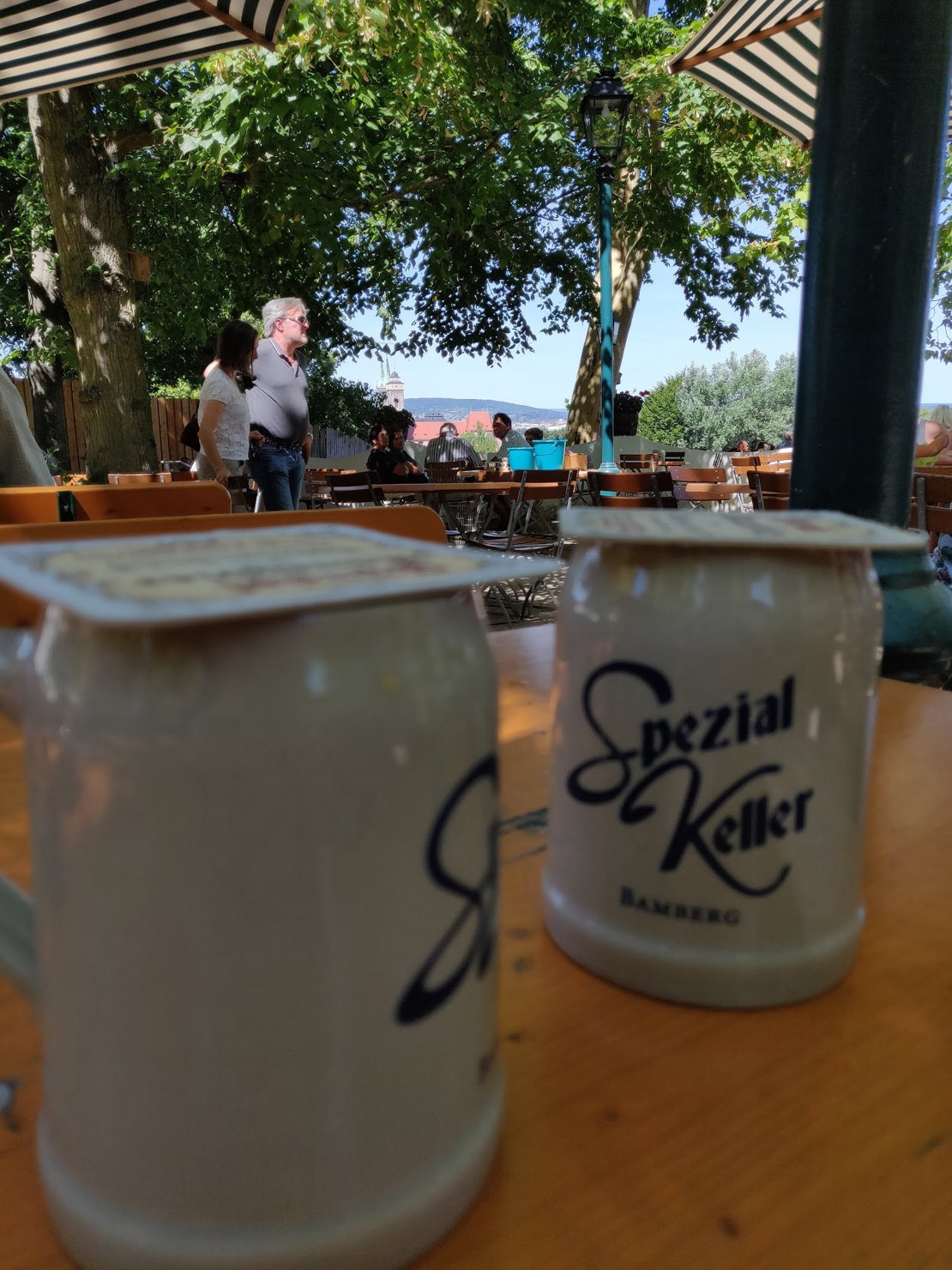
Spezial Keller, Bamberg
Modern Times, Age-old Tradition
In today's fast-paced world, the beer kellers of Franconia stand as a testament to the region's commitment to preserving tradition. Even as craft beer becomes a global phenomenon, with innovative flavors and brewing techniques capturing the imagination of drinkers everywhere, the beer kellers remain true to their roots.
Beer kellers, with their outdoor seating under the shade of chestnut trees, offer an ideal setting for family outings. The open spaces allow children to play and run around while adults converse and enjoy their beer.
Family celebrations, such as birthdays or anniversaries, often find their way to beer kellers due to the relaxed and spacious environment.
Recognizing that families often visit with children, many beer kellers have set up dedicated play areas. Often to be found at the rear end, ensuring that kids are entertained and in sight while parents relax.
Many beer kellers host special events and festivals, especially during the summer. These can include live music, dance performances, and other entertainment suitable for all ages, turning the beer keller visit into a festive outing for the whole family.
Tourists from all over the world now flock to Franconia, eager to experience the authentic, time-honored tradition of the beer keller. As they sit beneath the chestnut trees, sipping on a perfectly brewed lager, they are transported back in time, immersing themselves in a piece of living history.
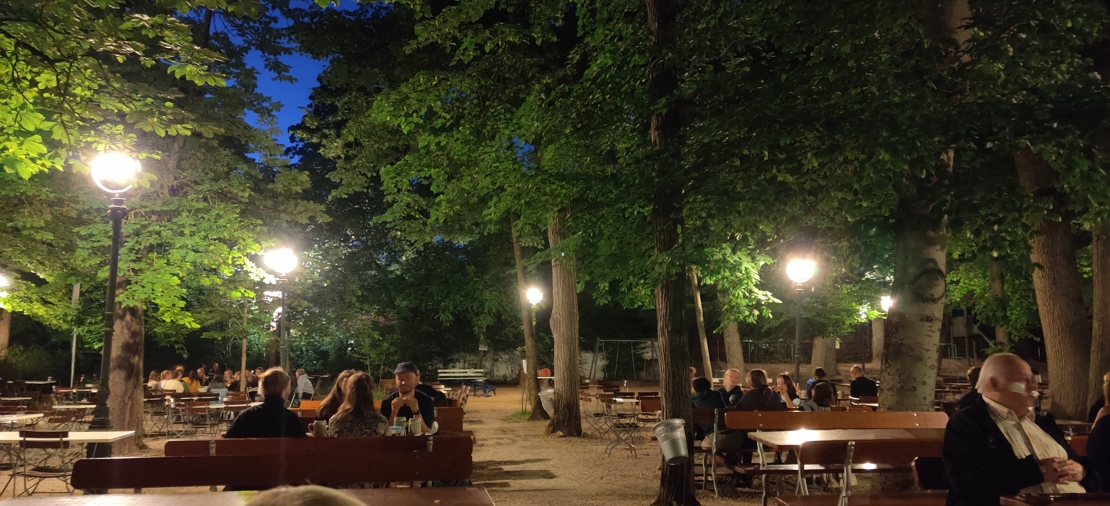
Wilde Rose Keller, Bamberg
Private Kellers
In addition to the public beer kellers that became community hubs and tourist attractions in Franconia, there exists a lesser-known but deeply rooted tradition of private beer kellers. These are personal cellars dug into hillsides, often by families, not necessarily for commercial purposes but for personal use and storage.
Historically, many towns and villages in Franconia had a local ordinance that allowed citizens to brew beer. These rights were sometimes linked to owning property. A homeowner could brew beer, and for personal consumption, the quantities could be considerable. With the brewing right, and given the lack of modern refrigeration, families who brewed their beer needed a place to store it. The solution was to dig their own cellars, much like the larger commercial breweries, to keep the beer at optimal temperatures year-round.
In some villages or towns, families or neighbors might collaborate to dig and maintain a communal beer cellar complex. Each family would have its designated section within this shared cellar. These communal cellars were not just about practicality but also became social hubs for smaller groups, neighbors, or extended families.
Private beer kellers were often sites of personal celebrations, like family milestones, birthdays, or anniversaries. They provided an intimate space for families and friends to gather and celebrate with beer brewed by the family or community.
Last but not least many use their private kellers to ferment and lager their hausbrauer beer bought from nearby breweries.
These private cellars are seen as part of Franconia's cultural and architectural heritage. In some towns, efforts are made to preserve them, acknowledging their historical significance in the region's beer culture. An example of that is the Unterhaider Kellergasse.
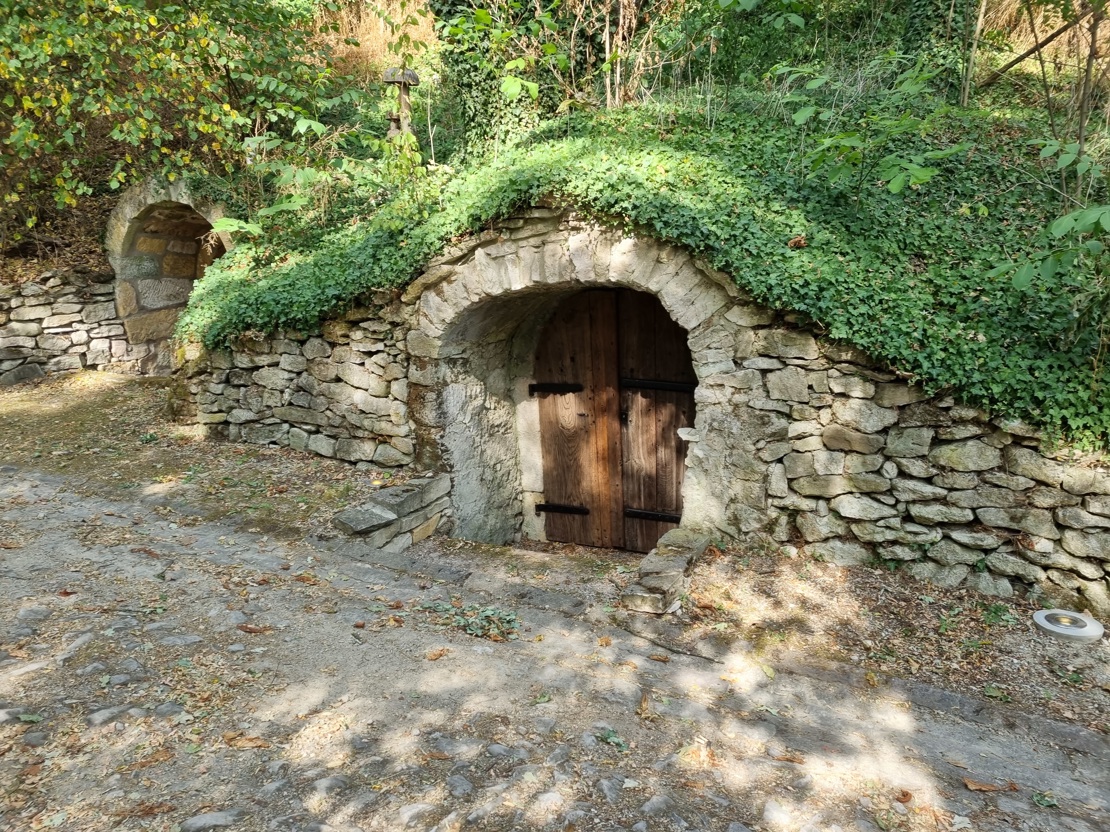
Unterhaider Kellergasse, Unterhaid
Kellers I like to visit
-
Griess Keller: A traditional beer keller known for its authentic atmosphere and a great Kellerbier. A must-visit for any beer enthusiast.
-
Roßdorfer Felsenkeller: It doesn't get more cozy than this. Charming spot and nice beer. You don't need more than that.
-
Mühlenbräu Keller: Calm setting in the village of Mühlendorf. Families enjoying their dinner, friendly host and good Kellerbier.
-
Lieberth Dorfkeller: A beloved spot for locals and tourists alike, Leiberth Keller provides a magnificent Kellerbier that is both classic and innovative, local made sausages and a lovely setting in Hallerndorf.
-
Roppelt's Keller (Stiebarlimbach): Nestled in a picturesque location, Roppelt Keller is the perfect place to unwind with a cold beer in hand. Its serene ambiance and top-notch Kellerbier makes it a favorite among many.
- Gambrinus Keller: On top of the Unterhaider Kellergasse. Apart from the stunning entrance, their Gambrinus Hausbräu, a contract bewed Ungespundetes Pils called Gambrinus12, is a great beer.
-
Spezial Keller: True to its name, Spezial offers something special for every beer lover. A classic Rauchbier and an amazing view over Bamberg ensures a memorable visit.
-
Wilde Rose Keller: Though their Kellerbier is not brewed by themselves anymore, the Reckendorf made Kellerbier is still good. A visit here is not just about the beer, but also about the experience of enjoying it in a beautiful setting and concerts.
In Conclusion
The beer kellers of Franconia are more than just places to drink beer. They are living museums, testaments to a region's deep respect for its past and its enduring love for community and craftsmanship. In Franconia, the beer keller is not just a place; it's a cherished tradition that continues to thrive, connecting generations and reminding us of the simple joys in life.
For more keller pictures, check out the gallery below.
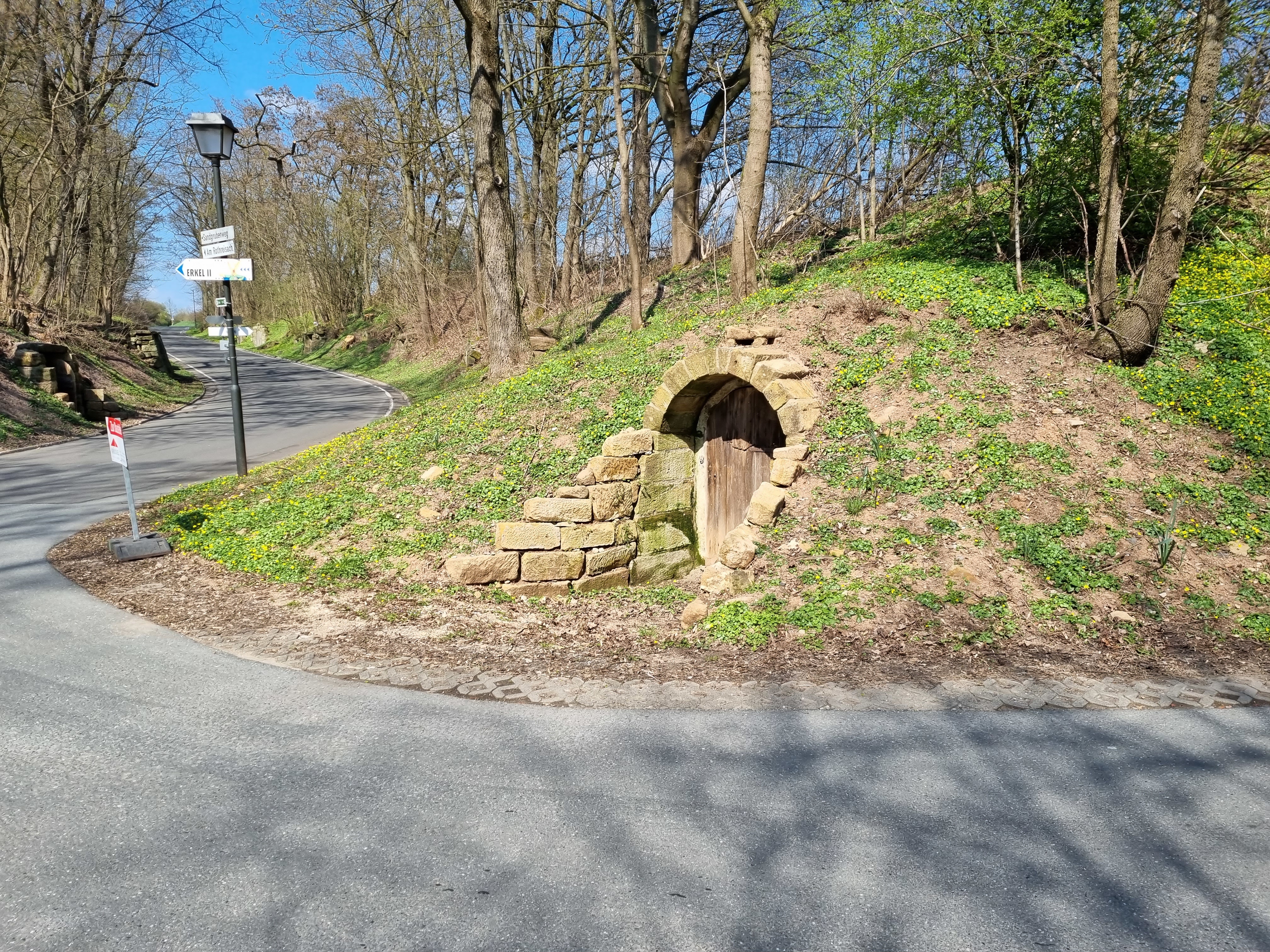
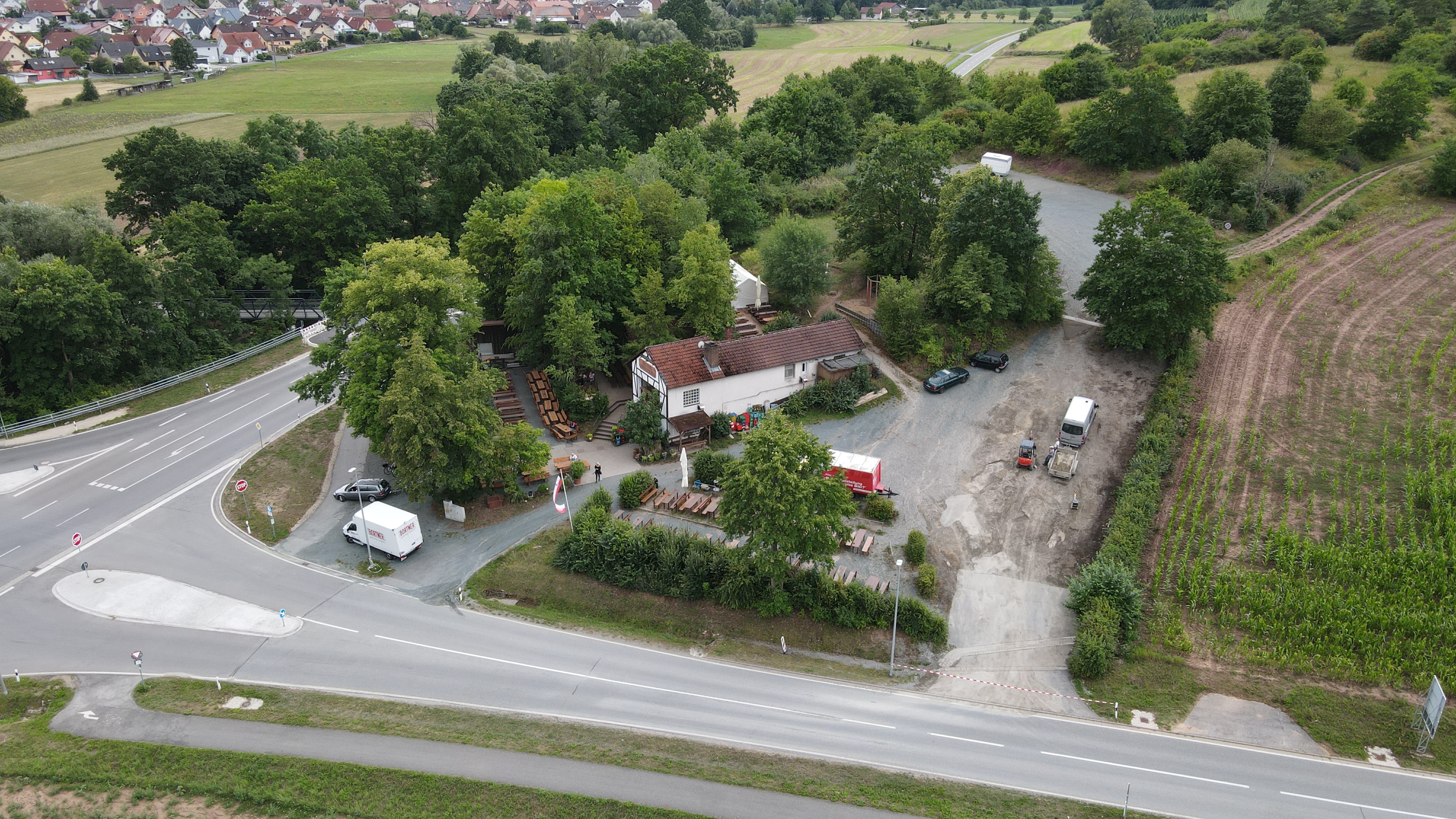
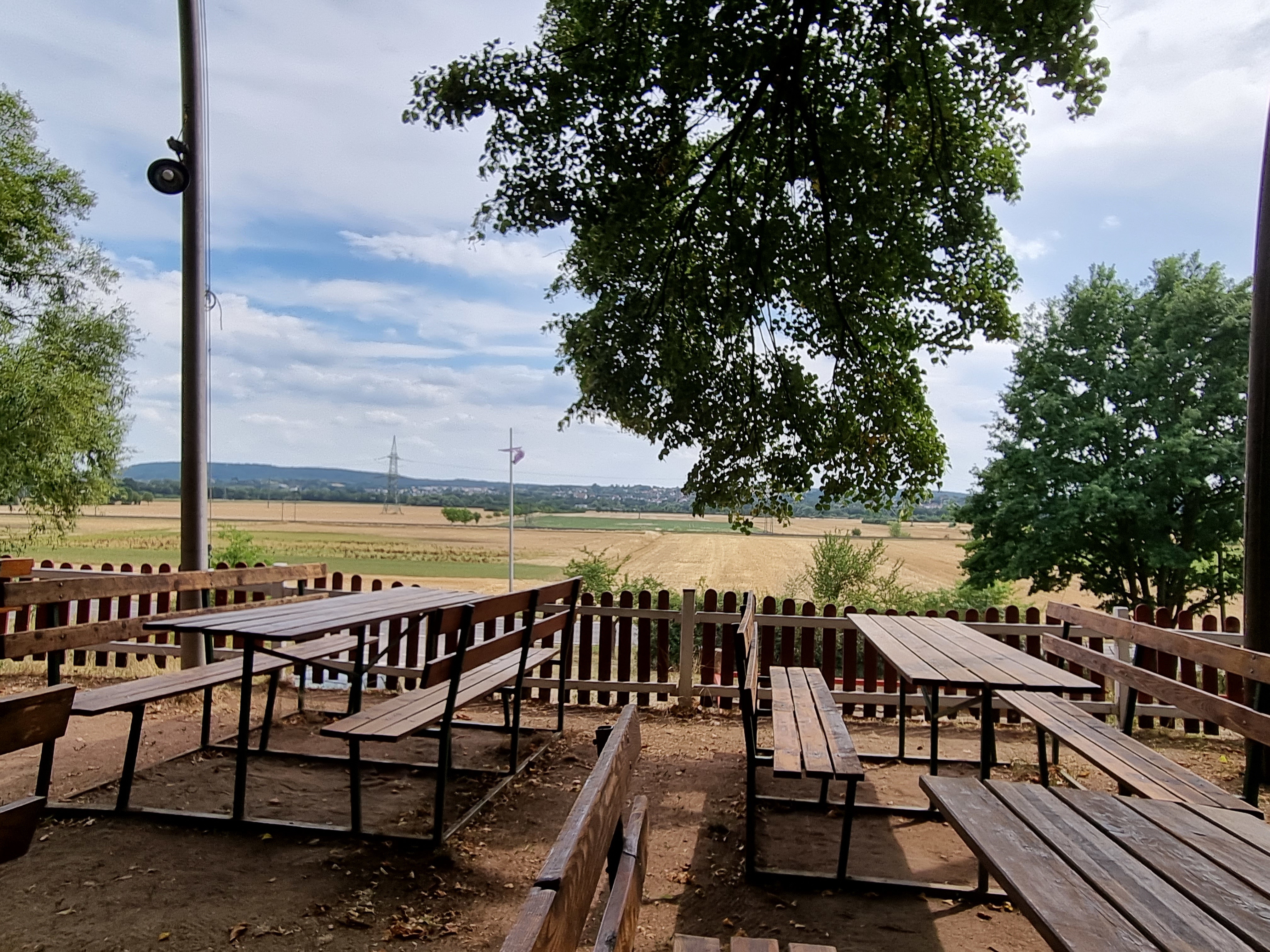
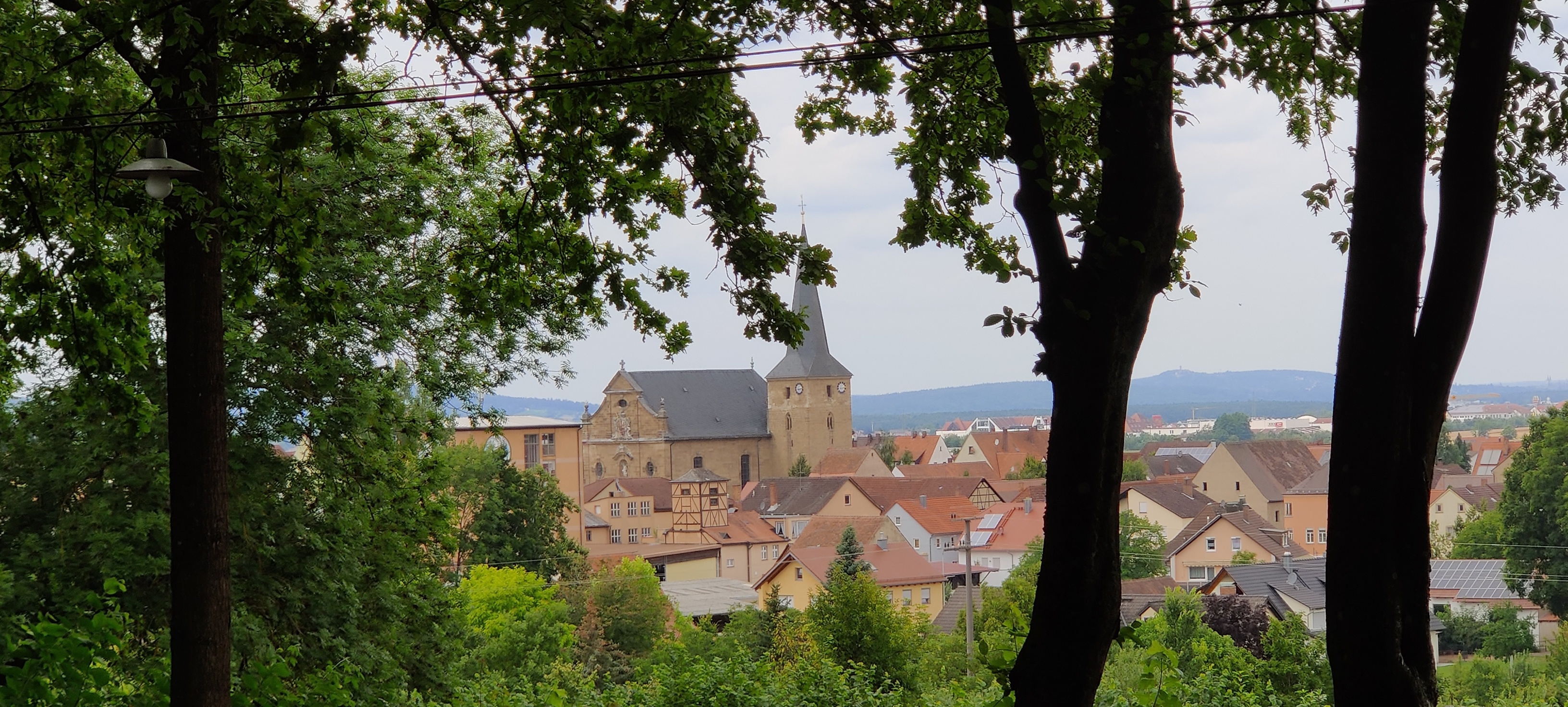
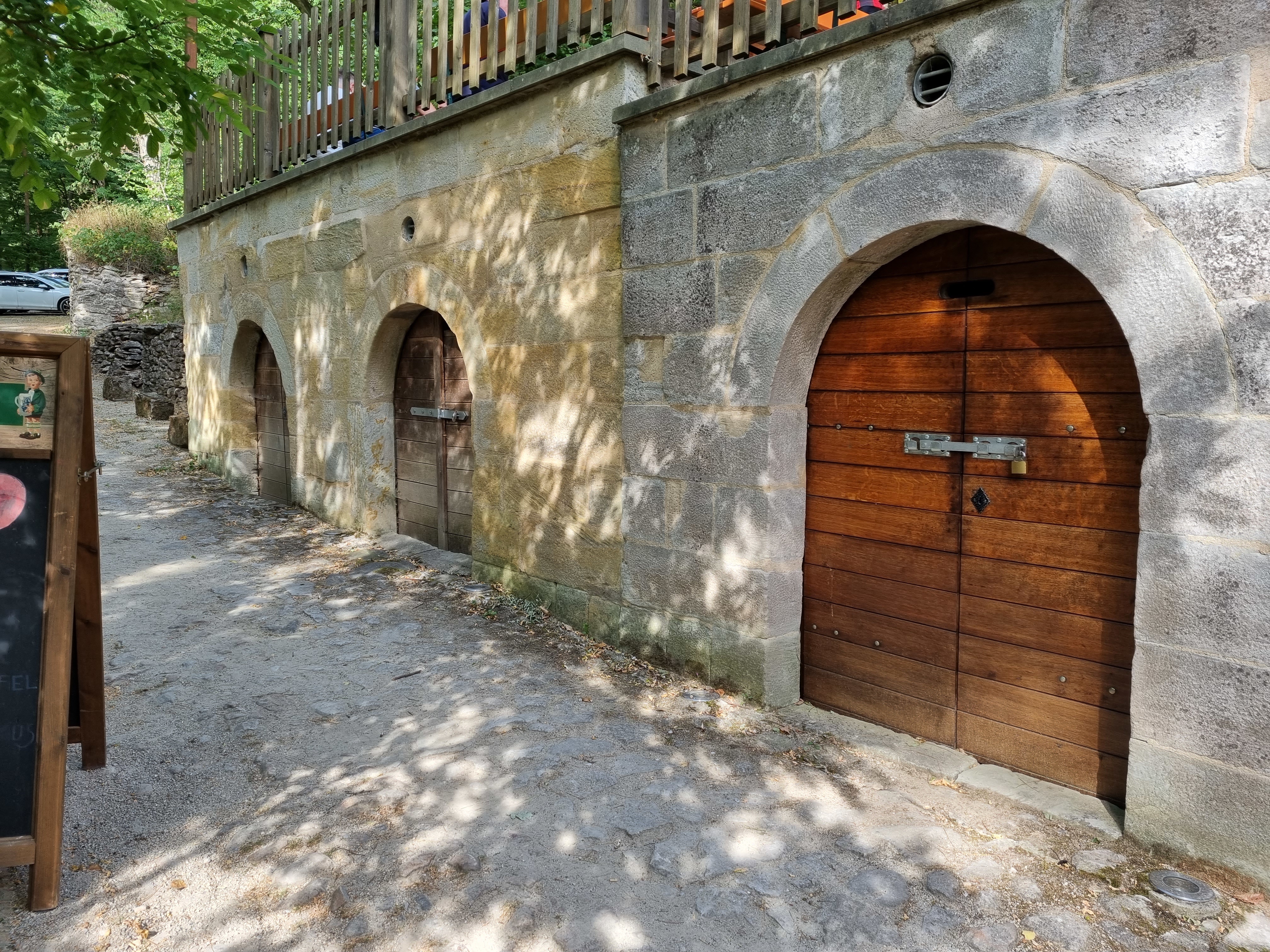
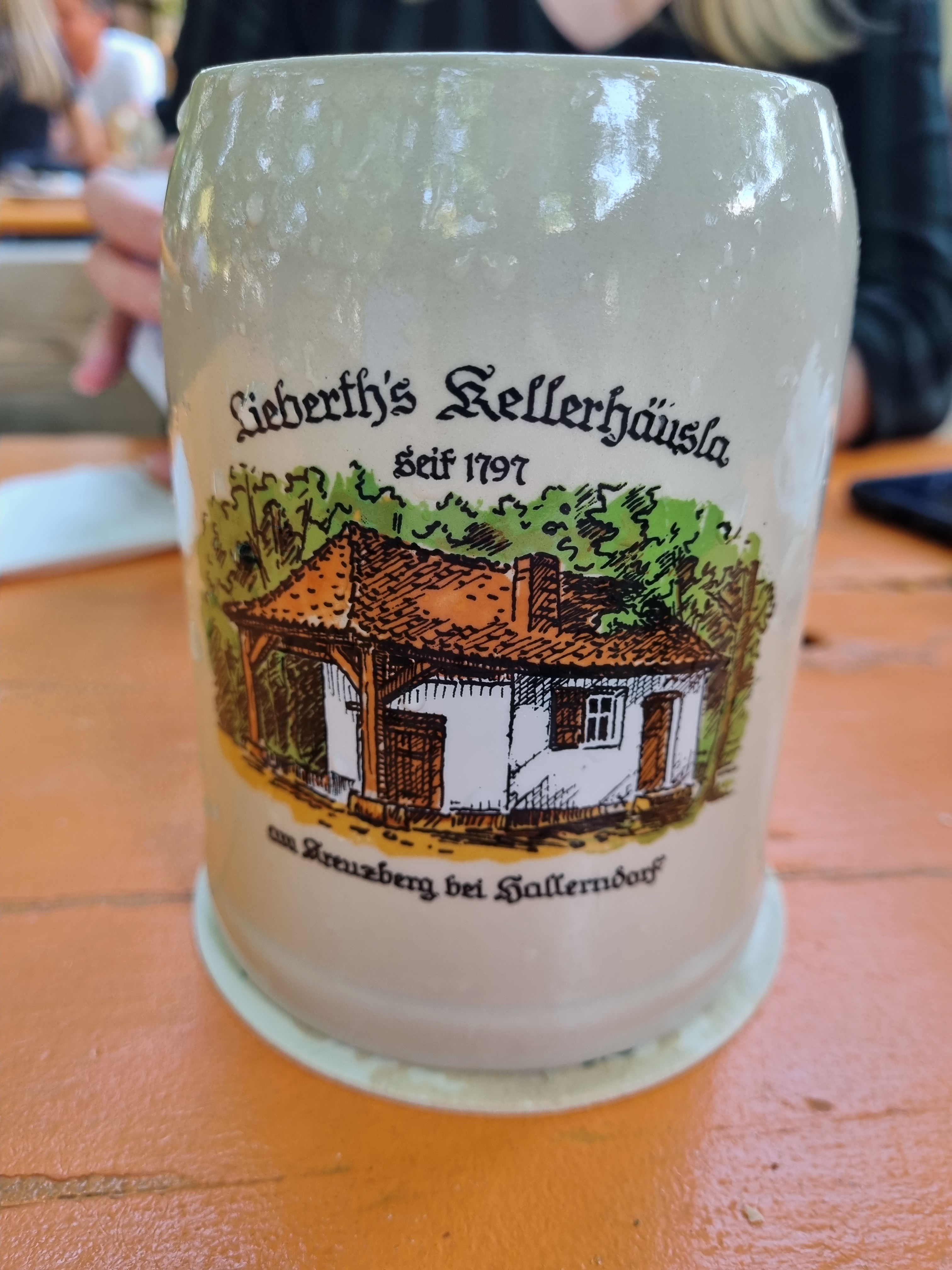
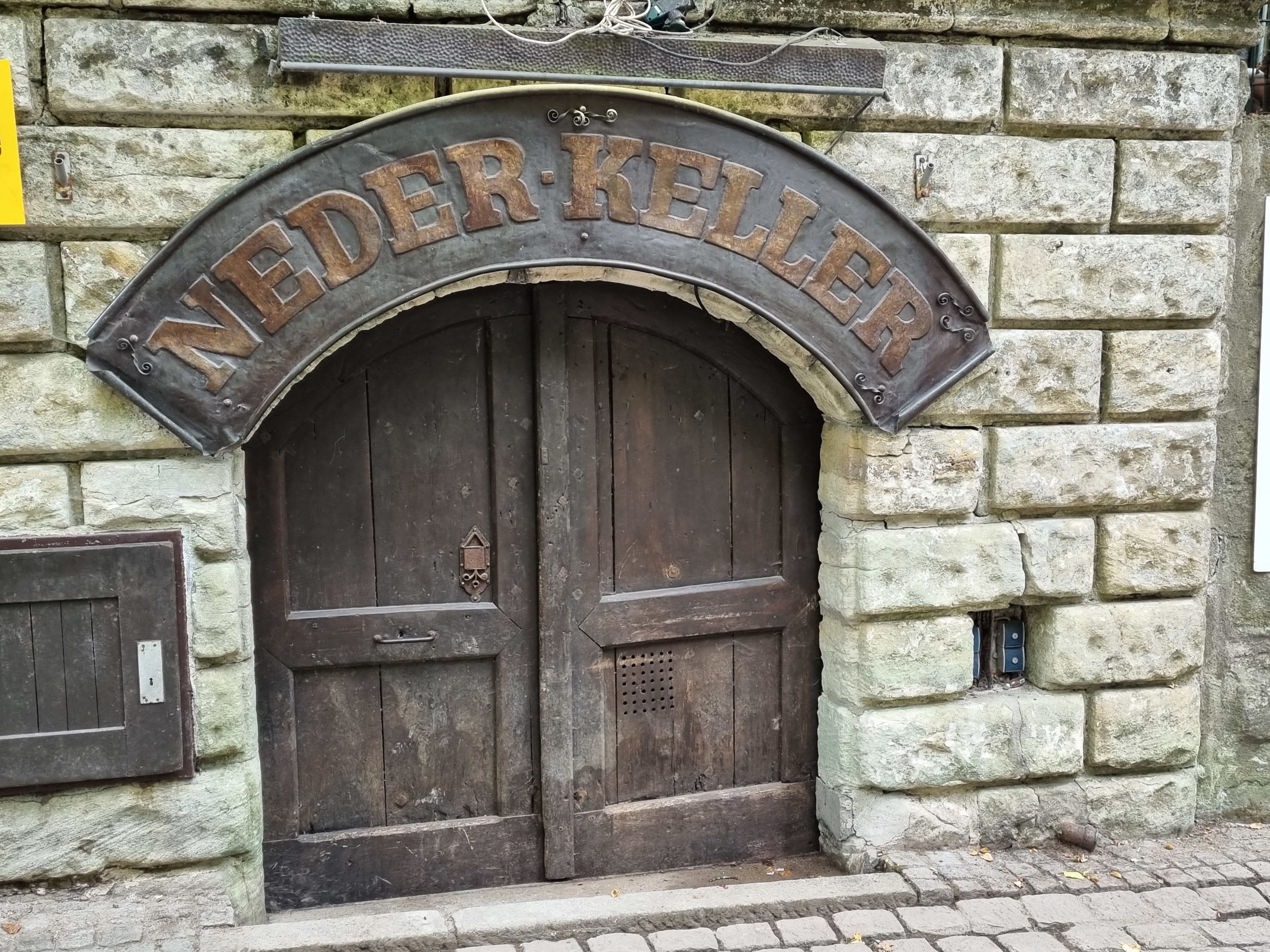
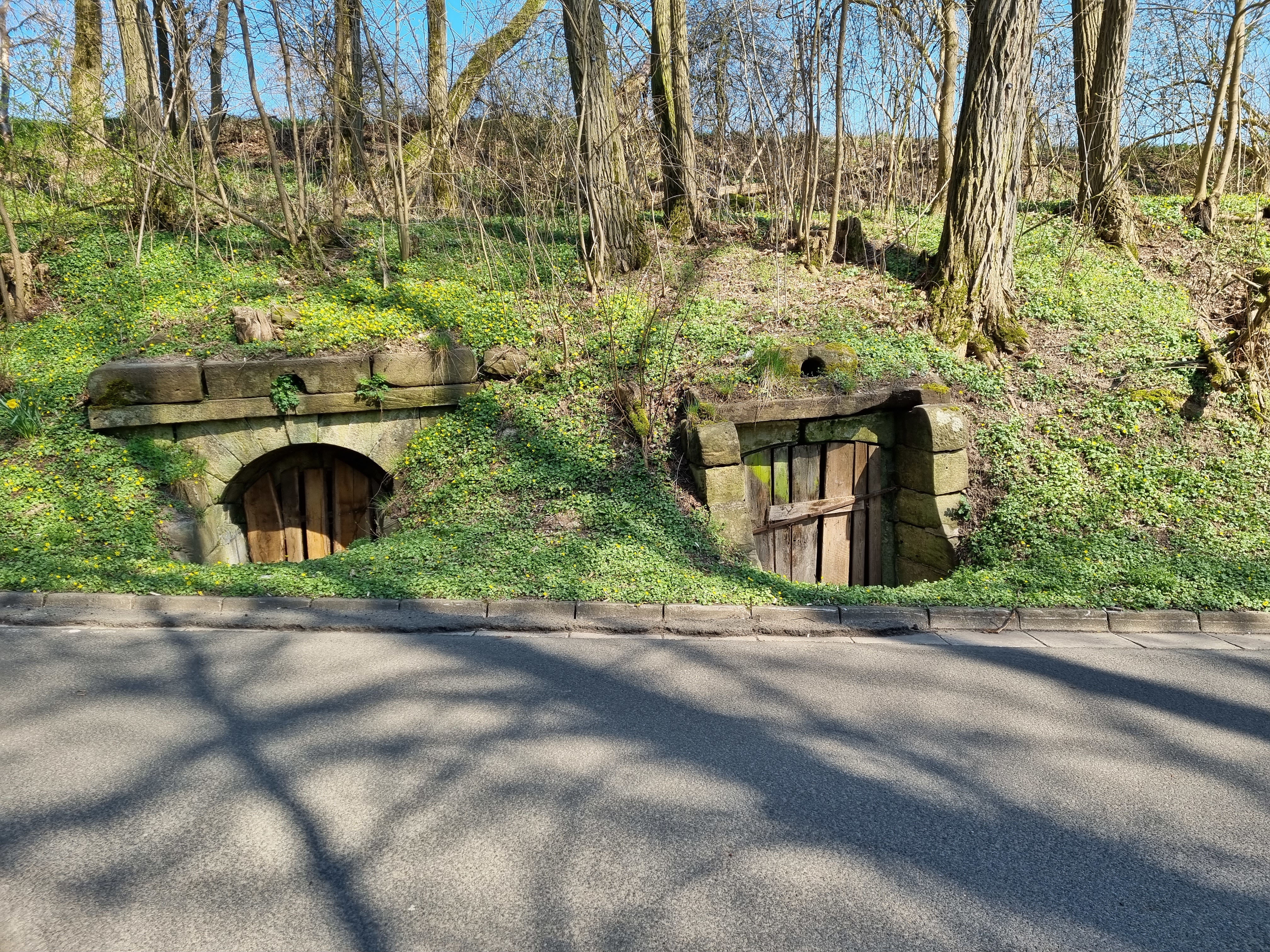
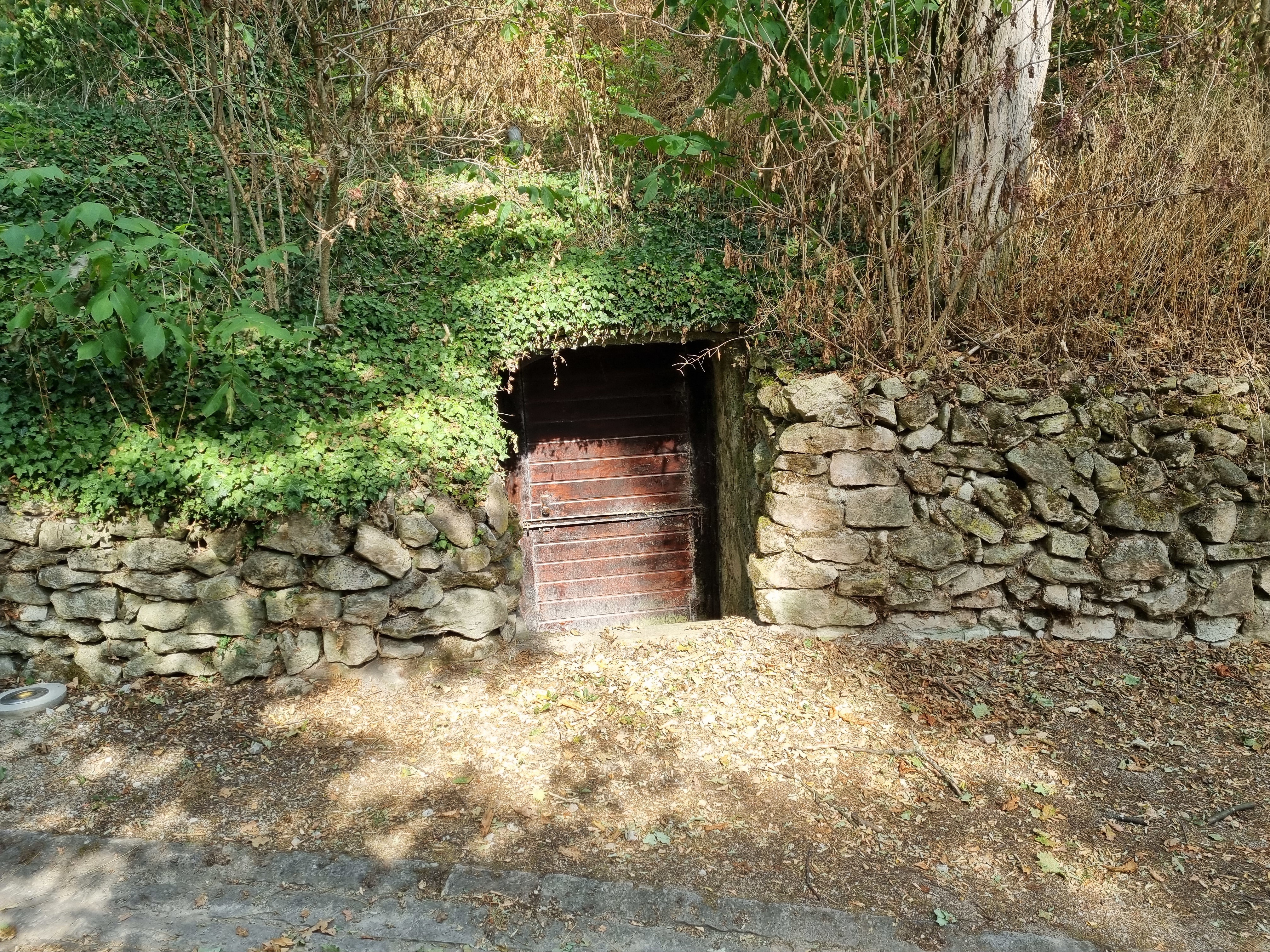
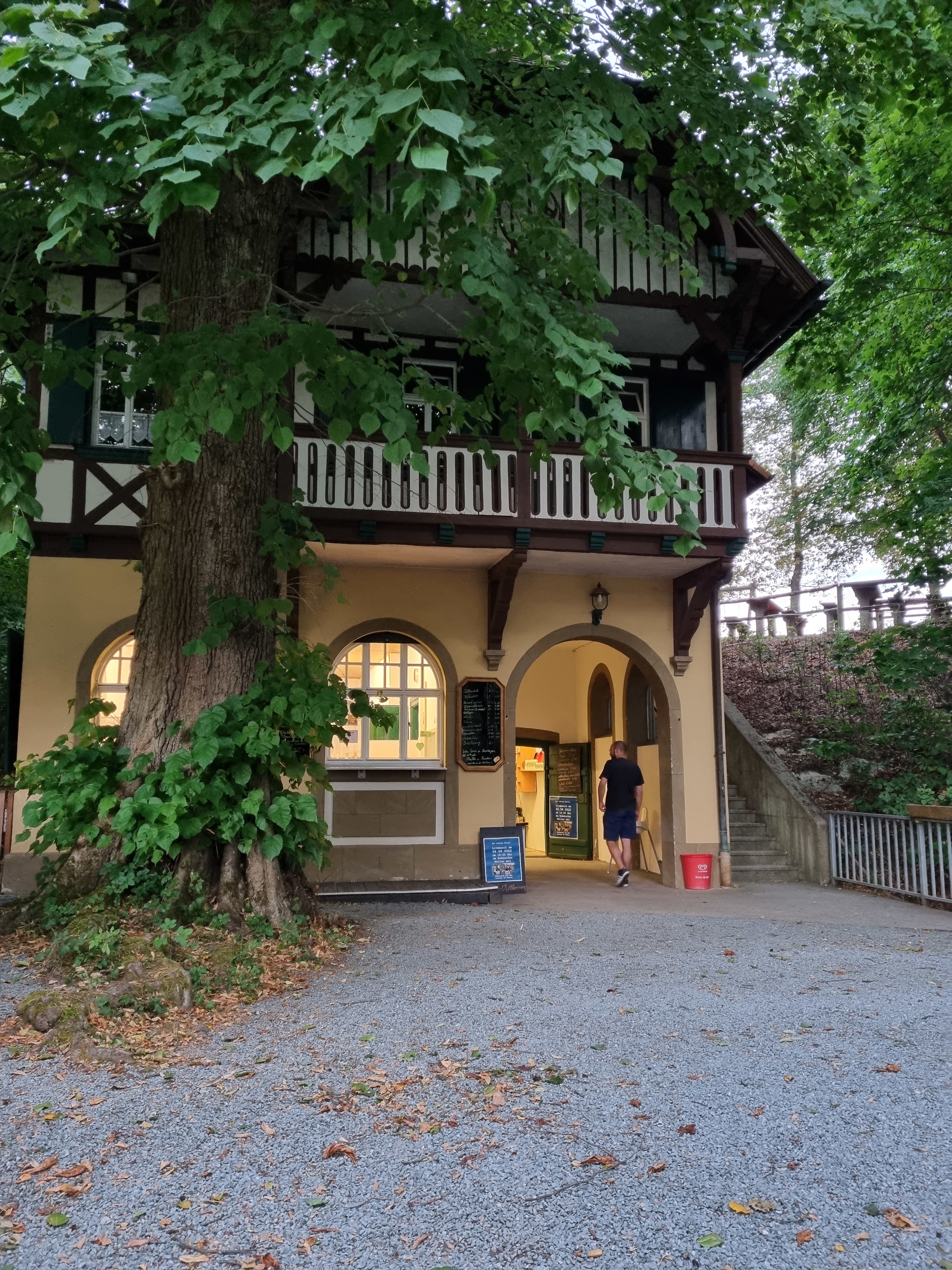
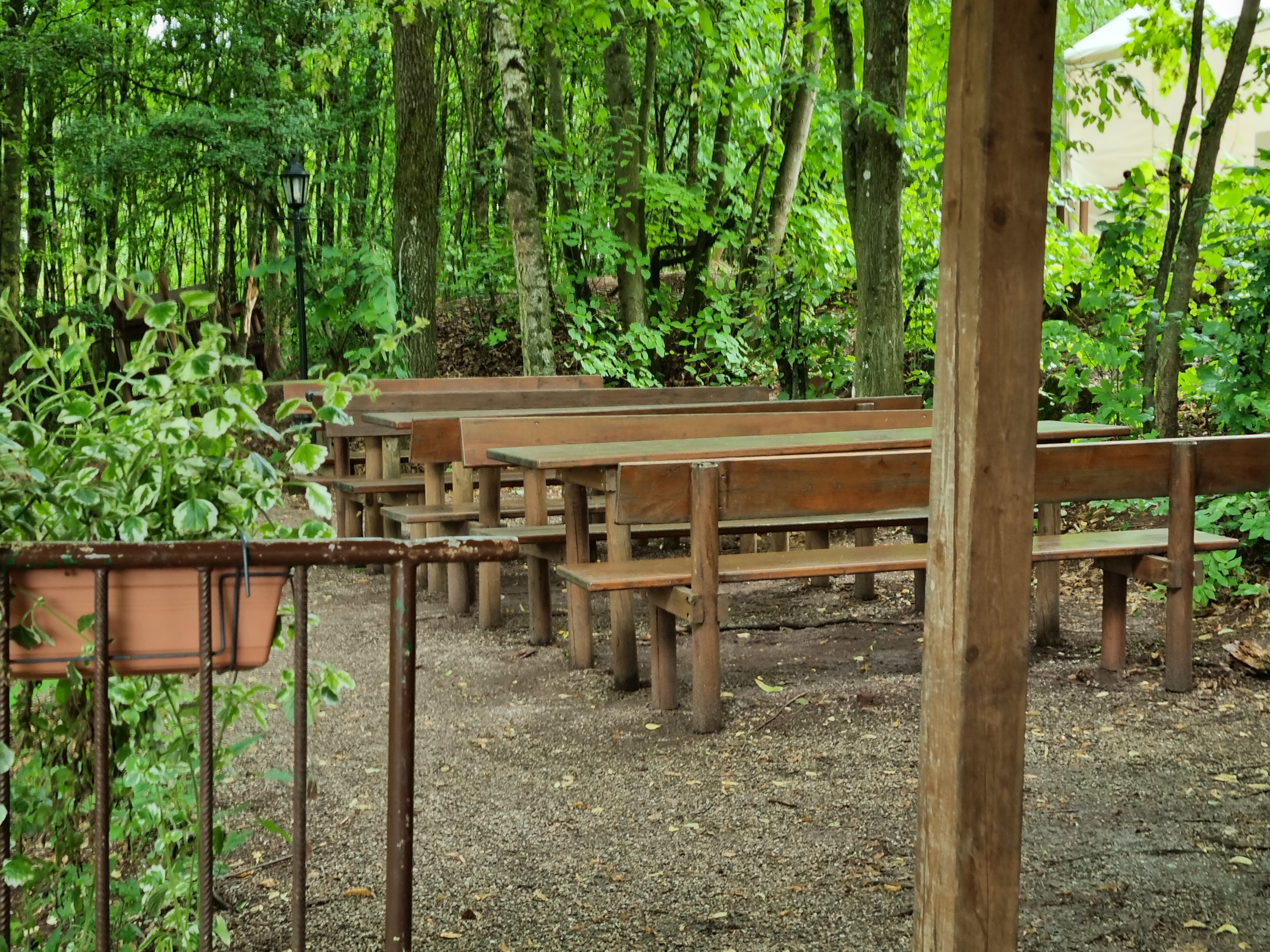
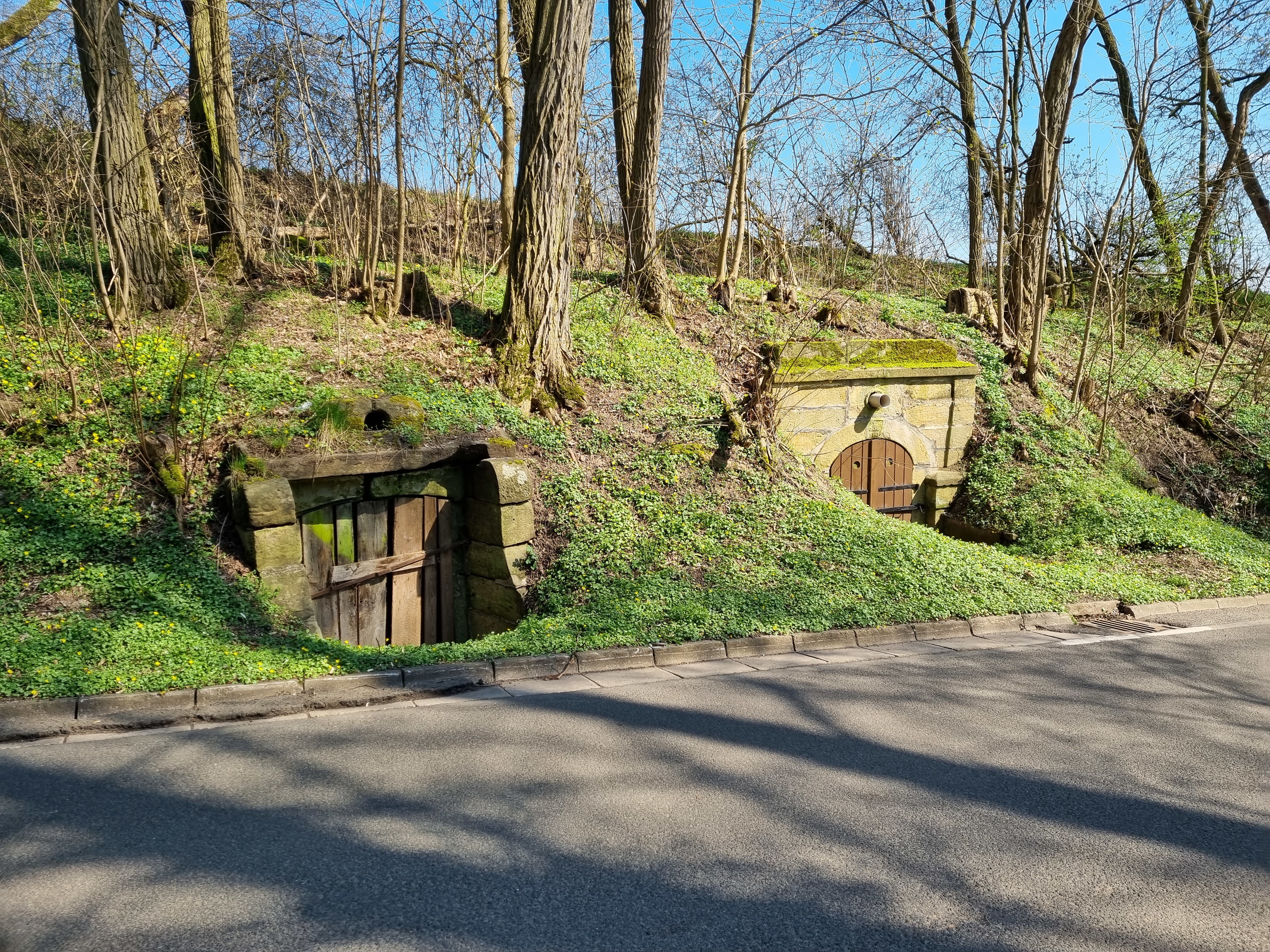
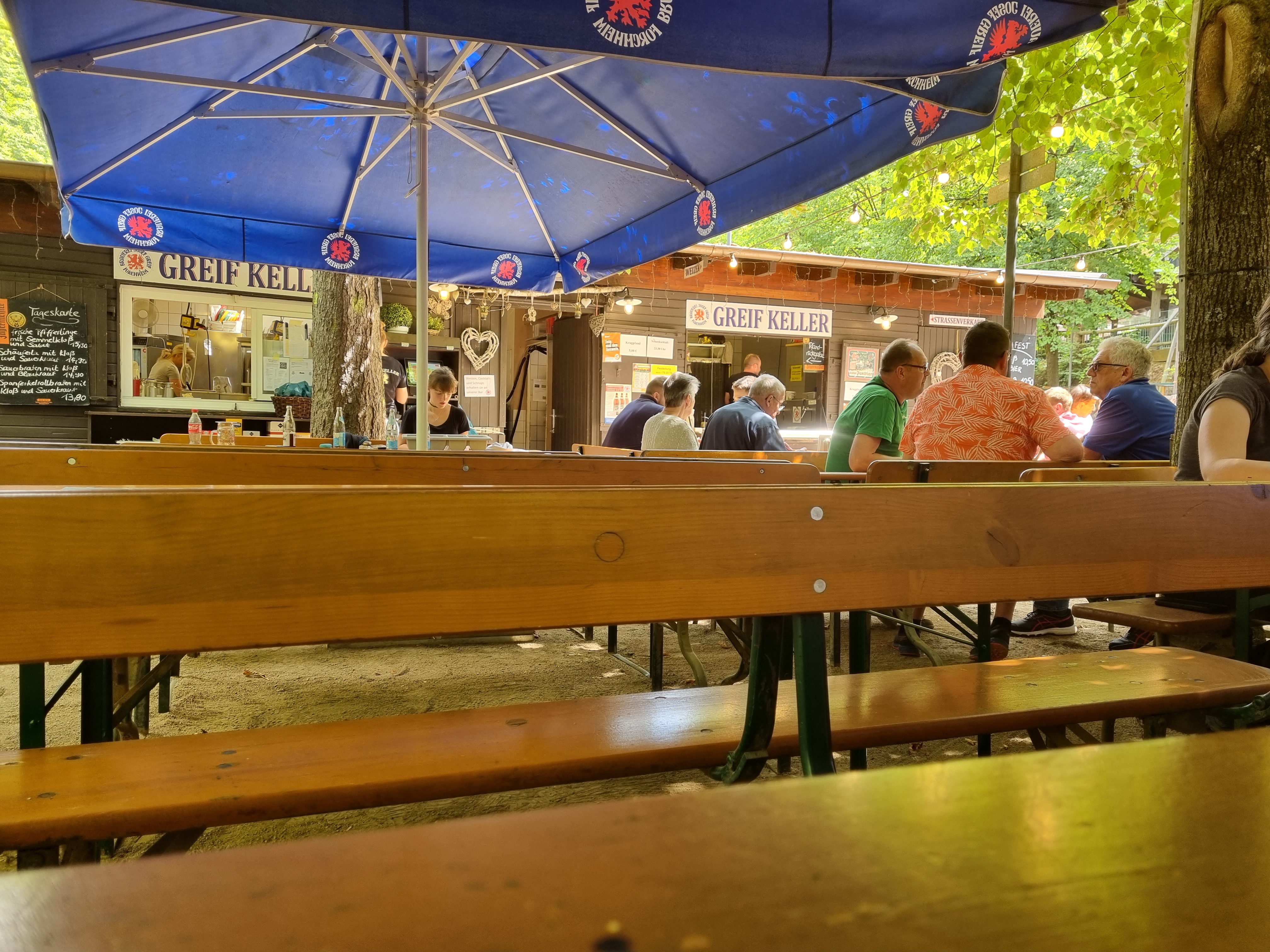
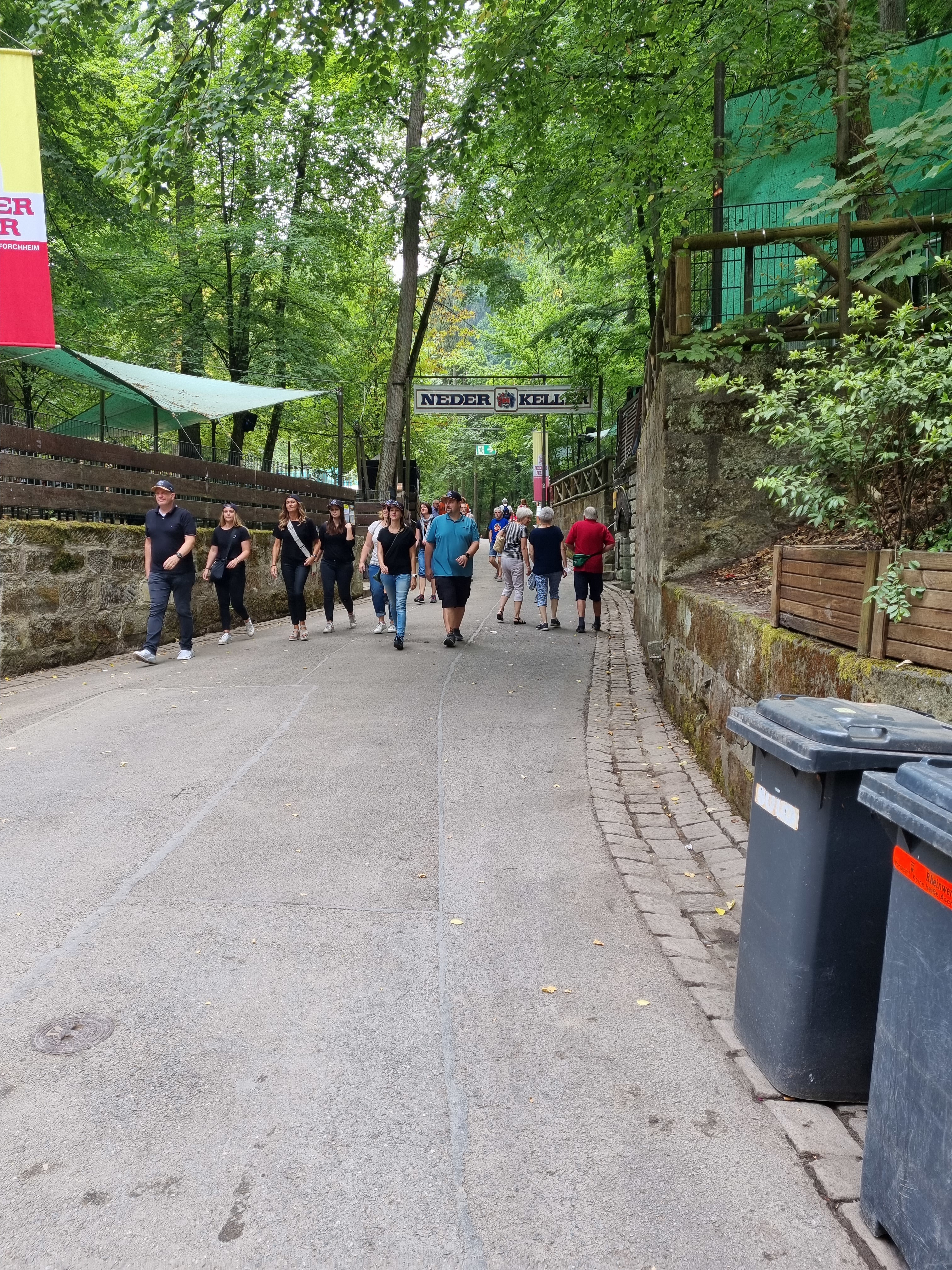
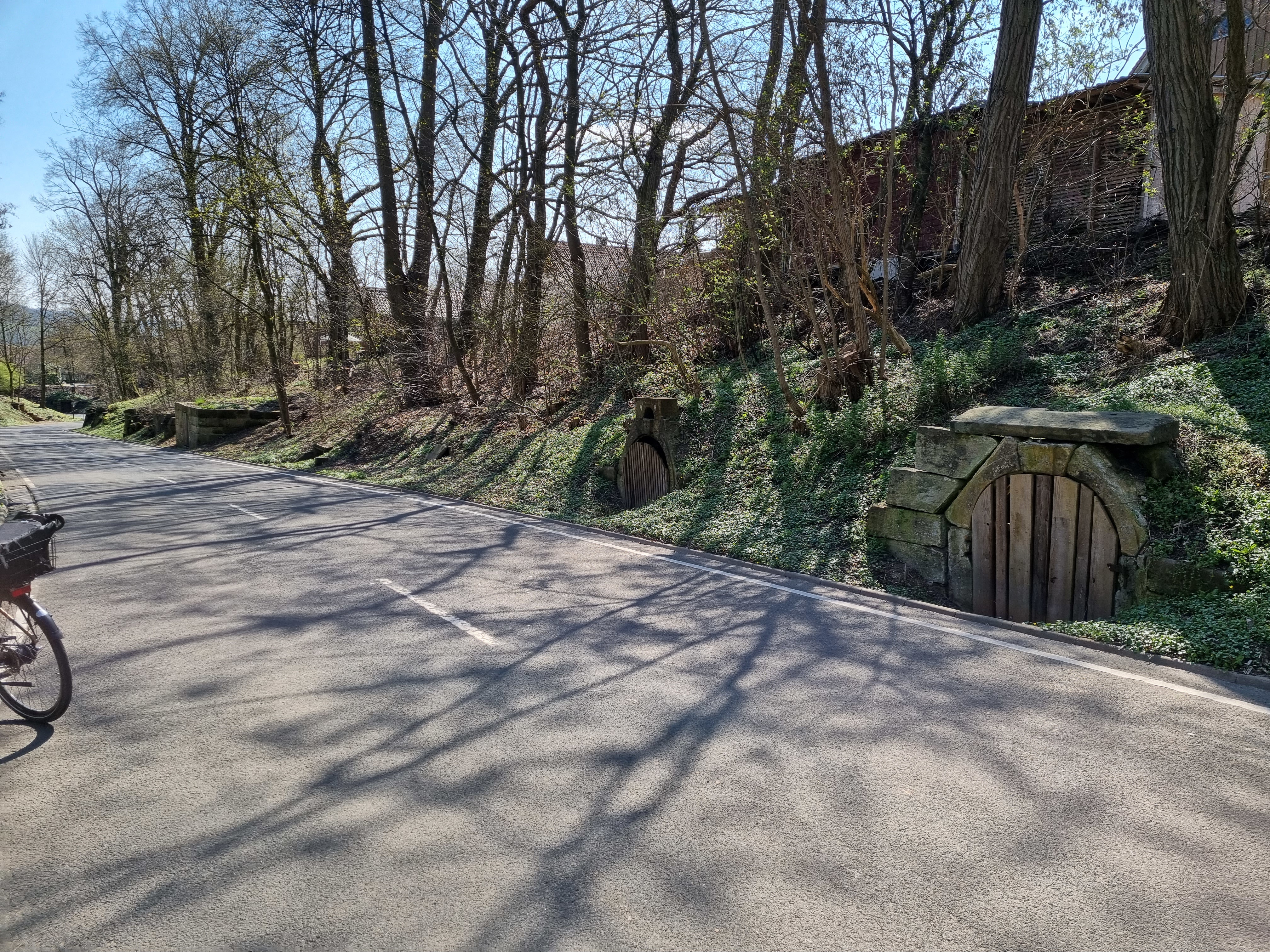
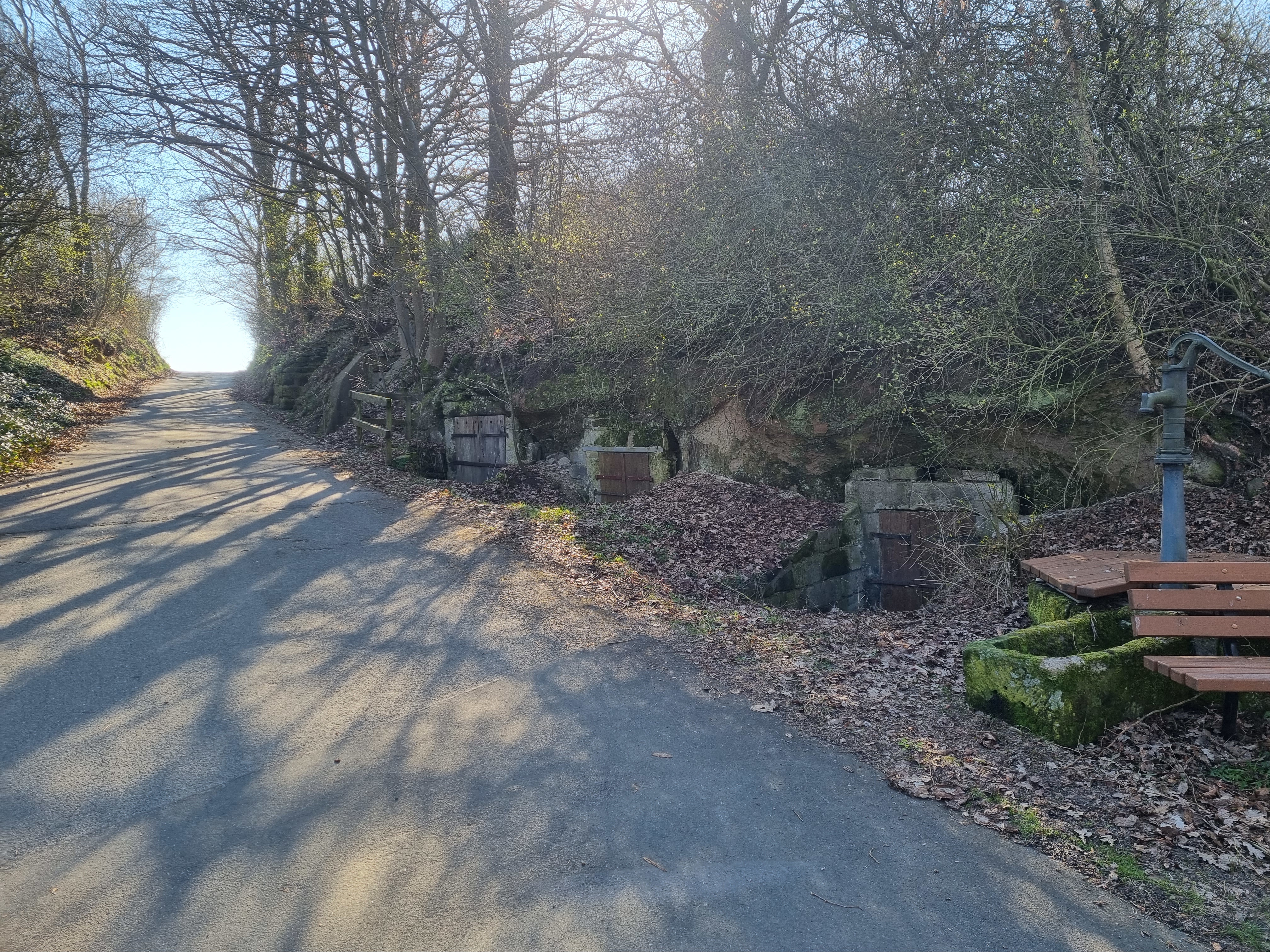
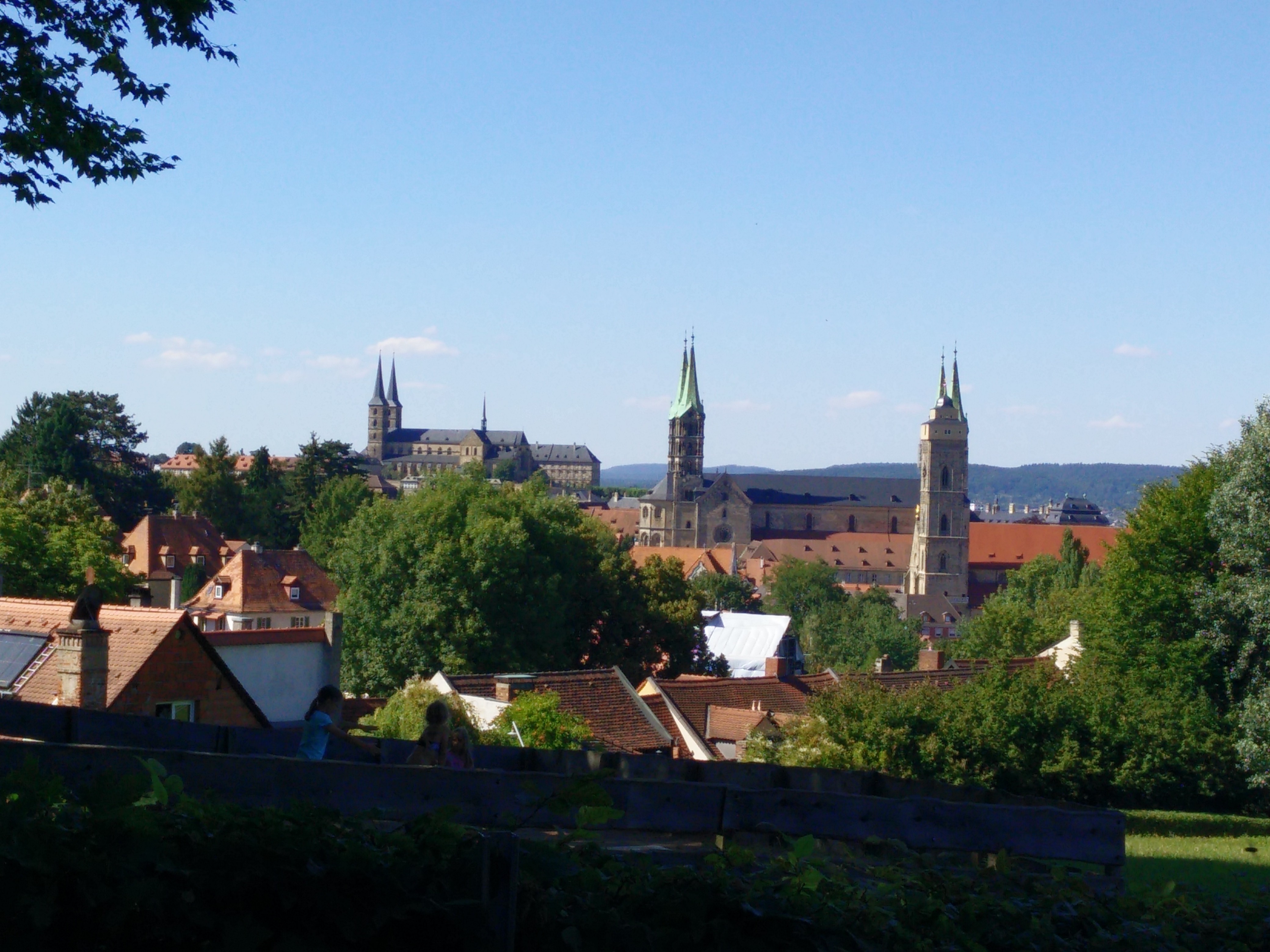
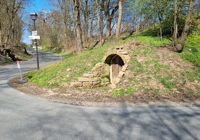
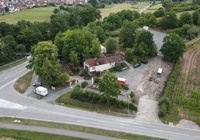
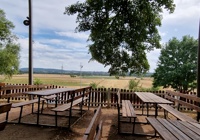
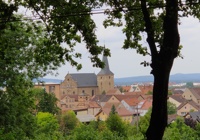
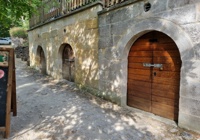
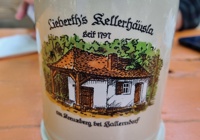
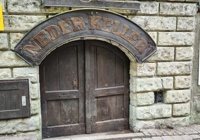
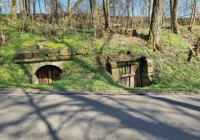
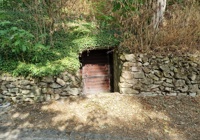
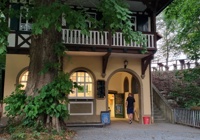
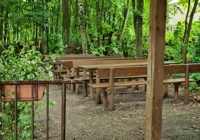
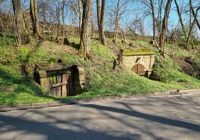
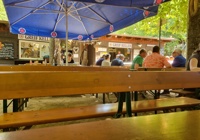
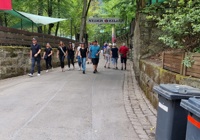
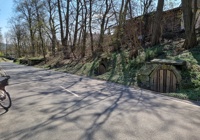
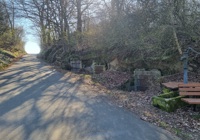
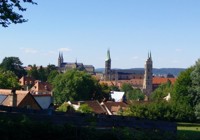
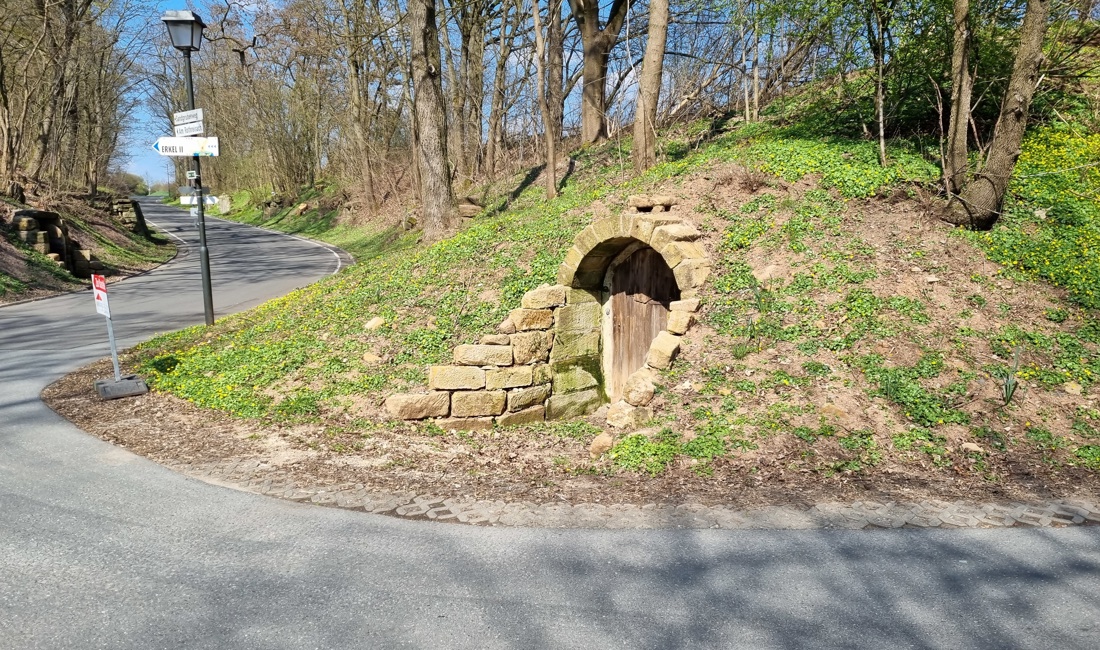
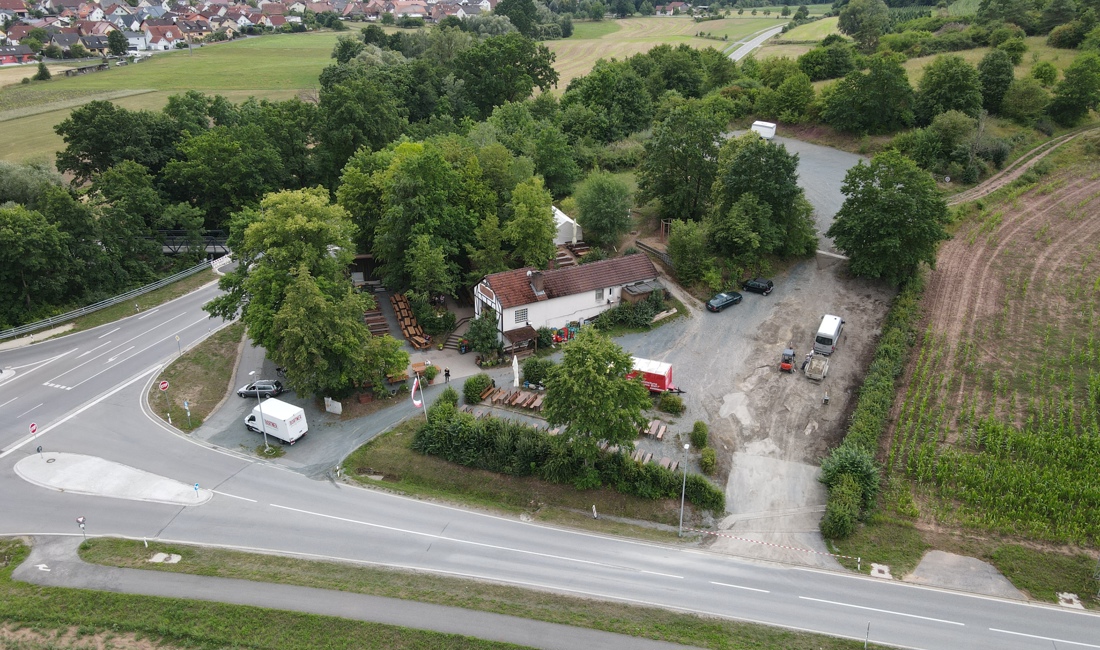
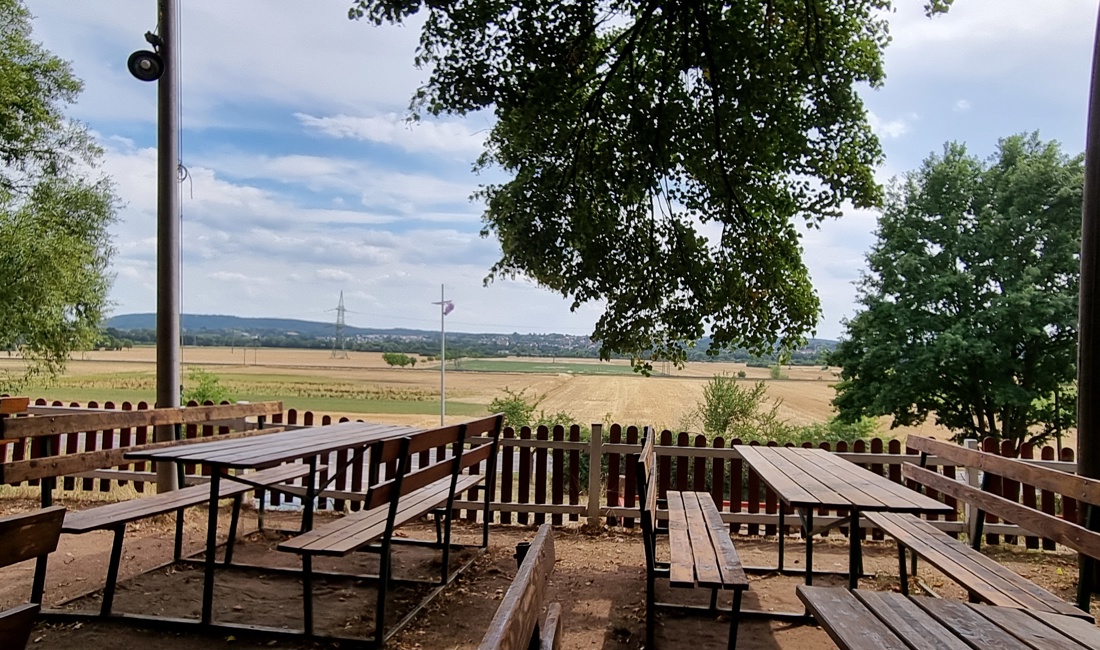
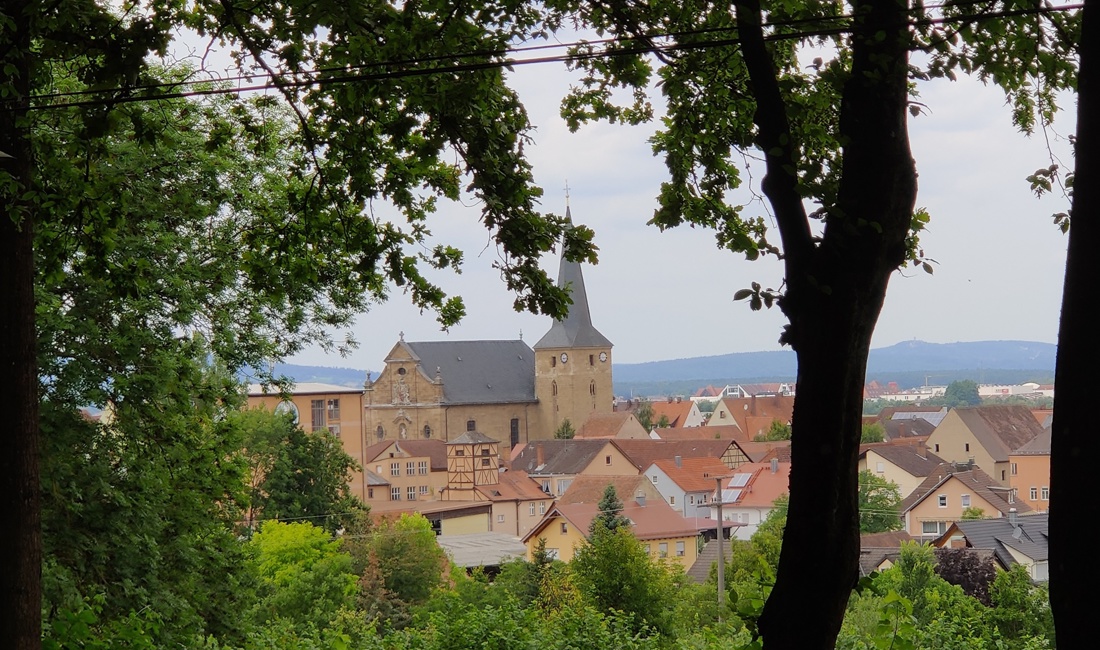
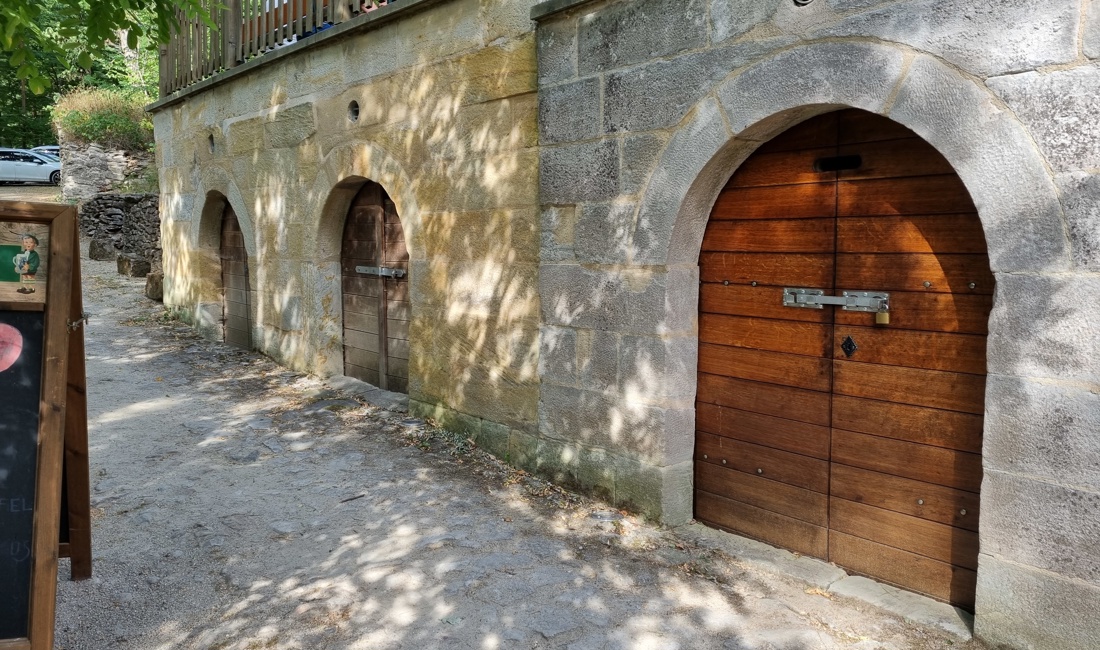
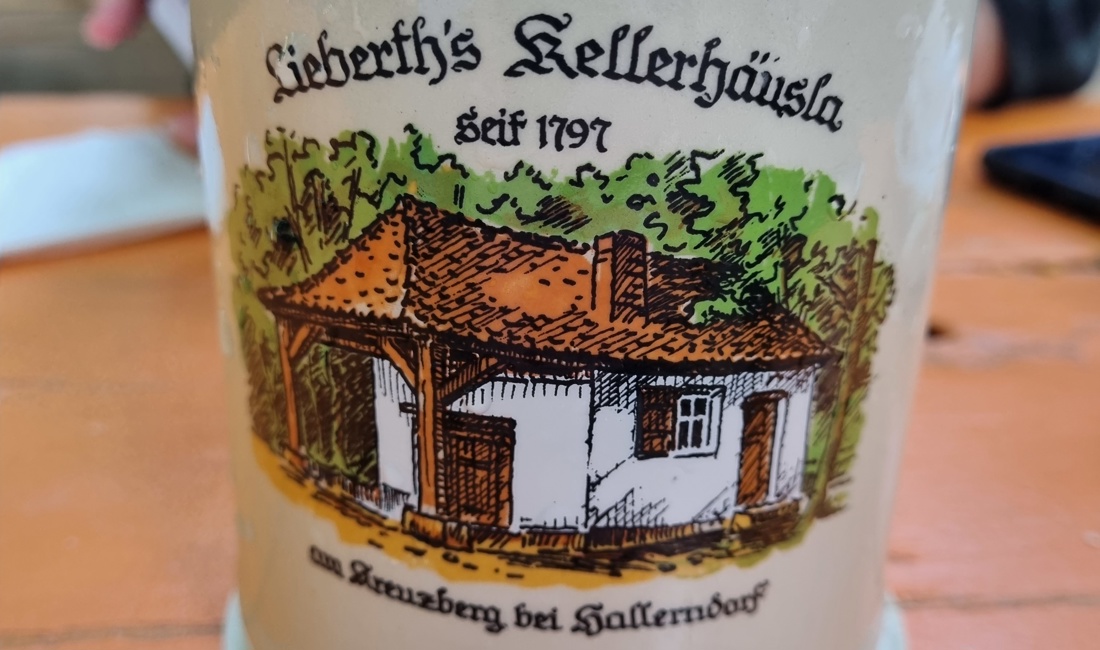
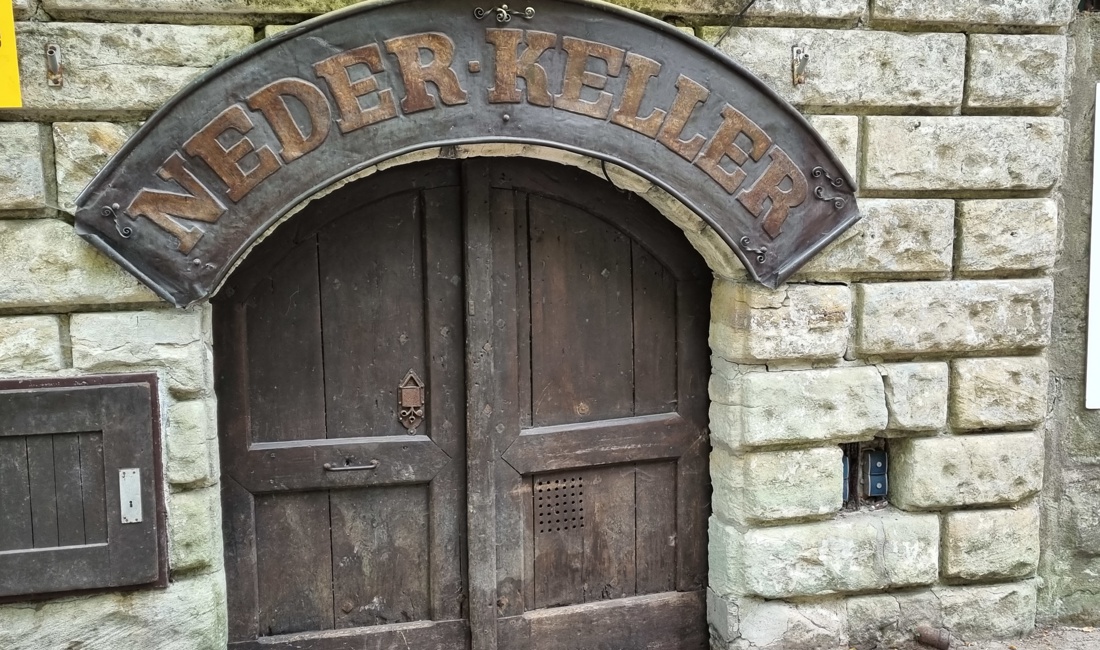
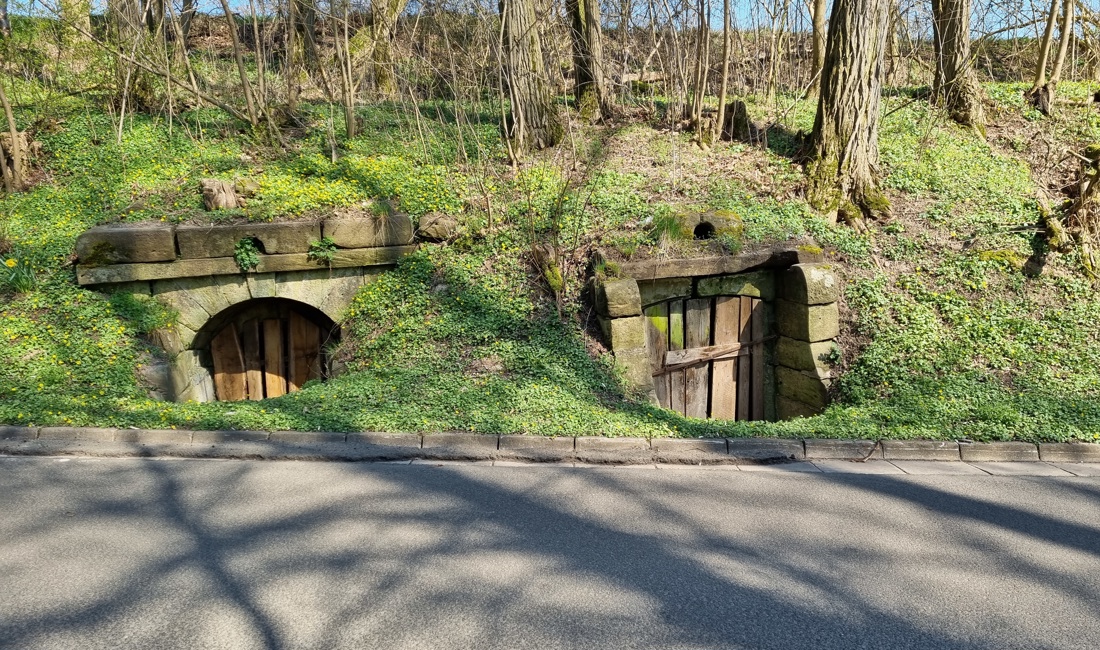
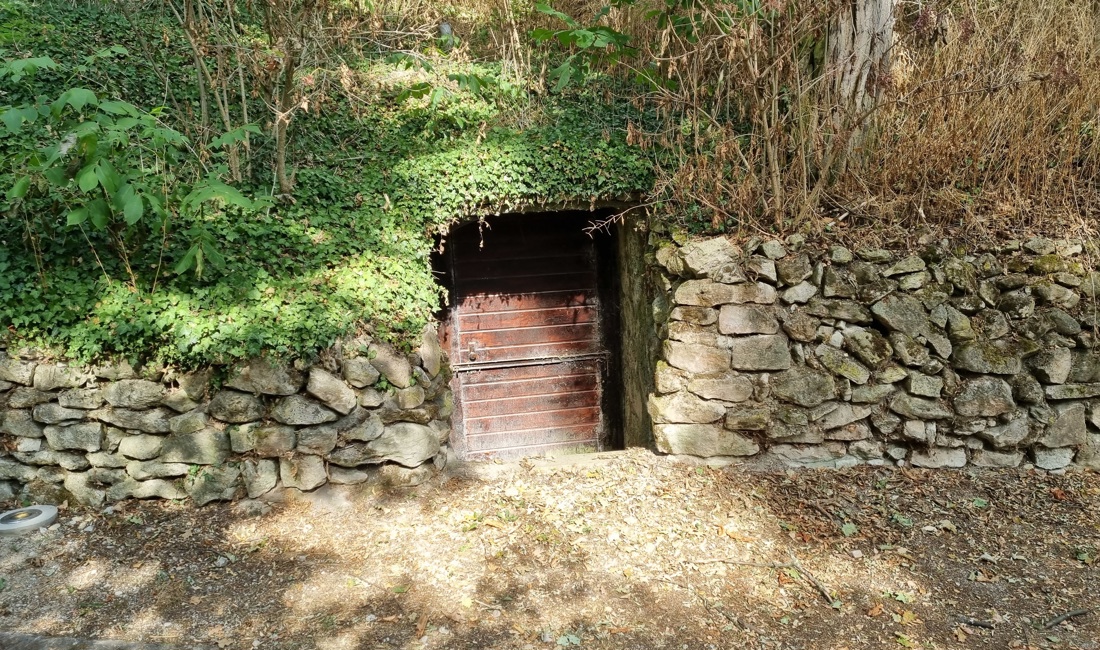
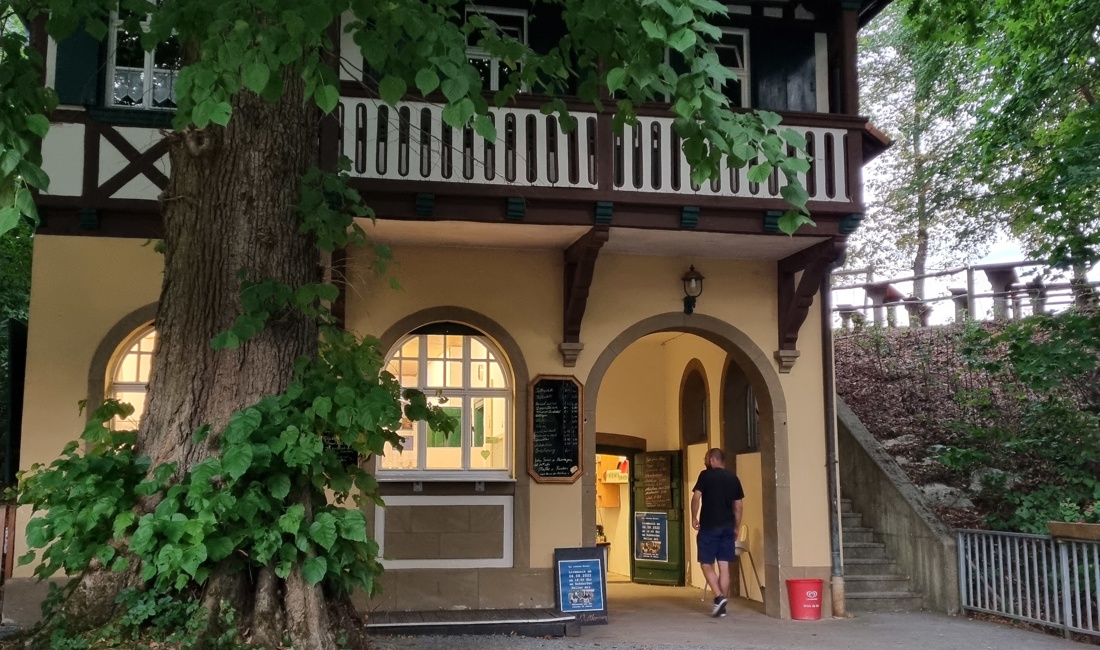
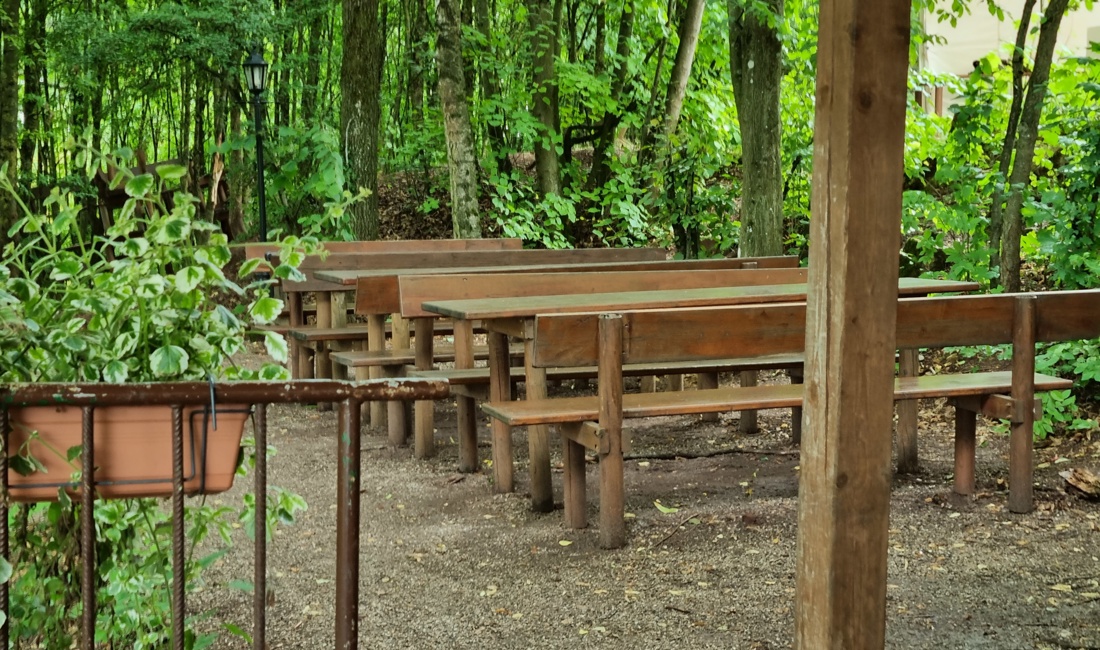
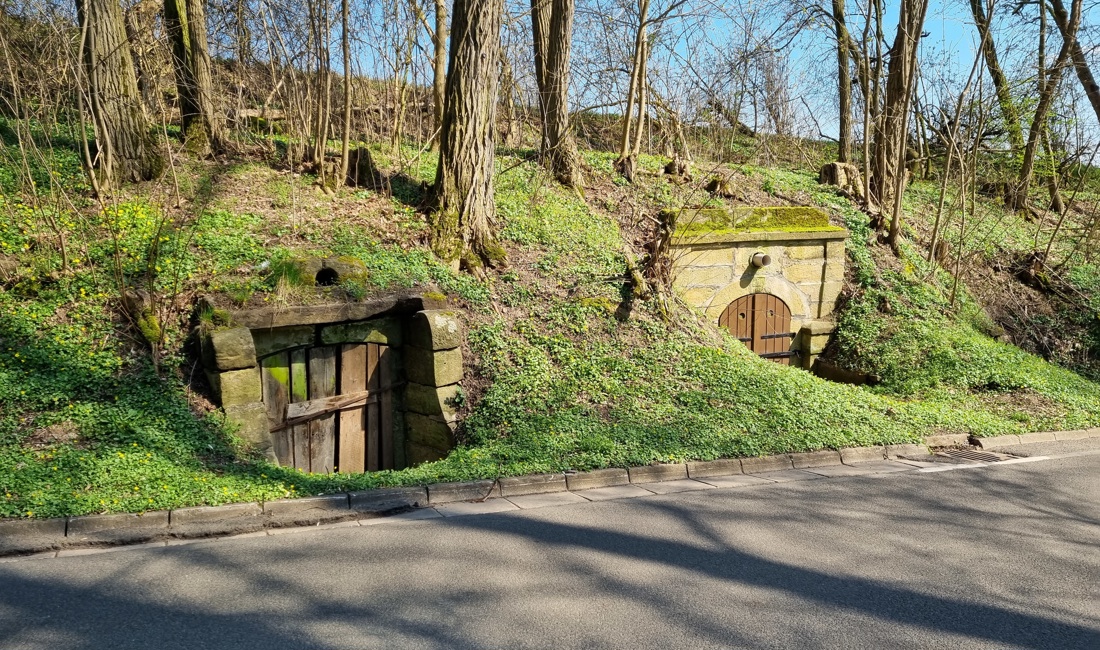
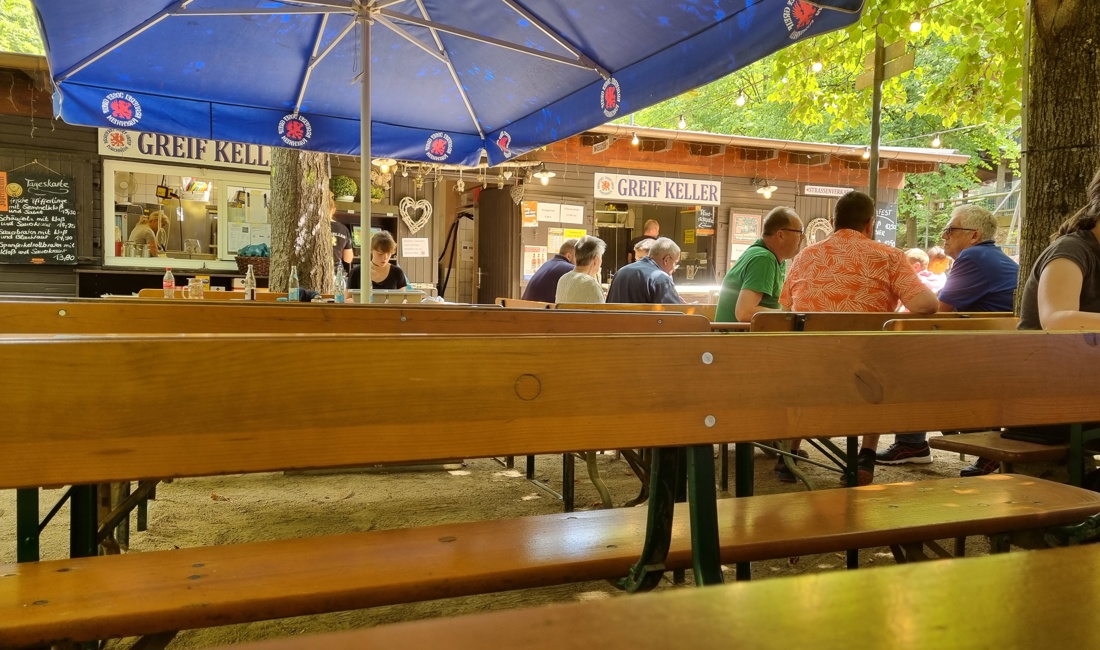
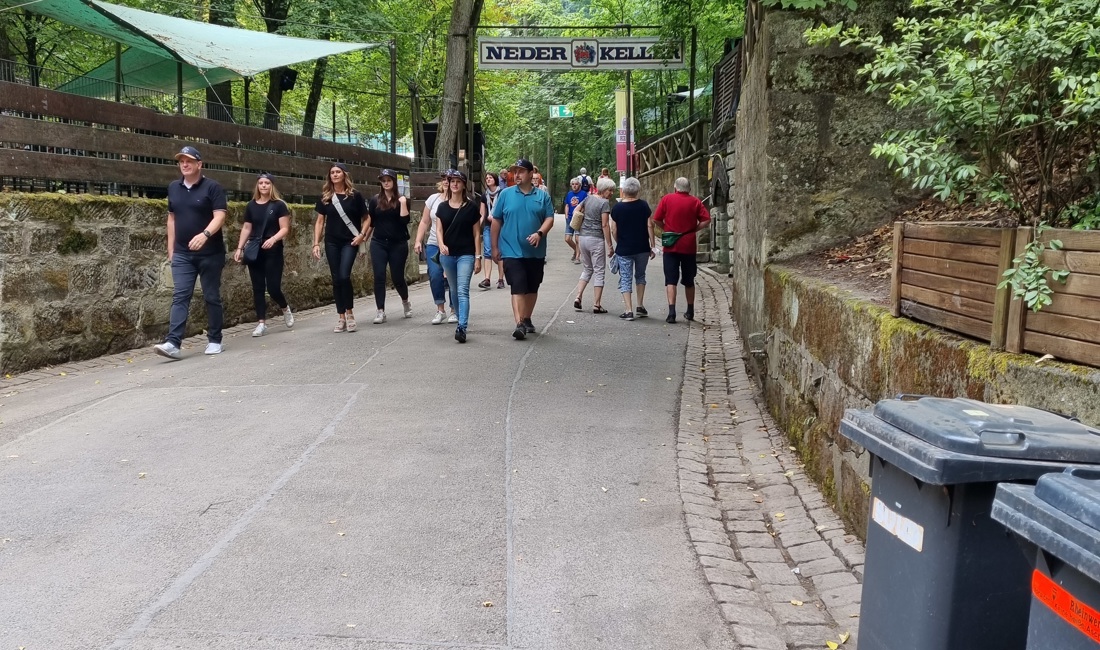
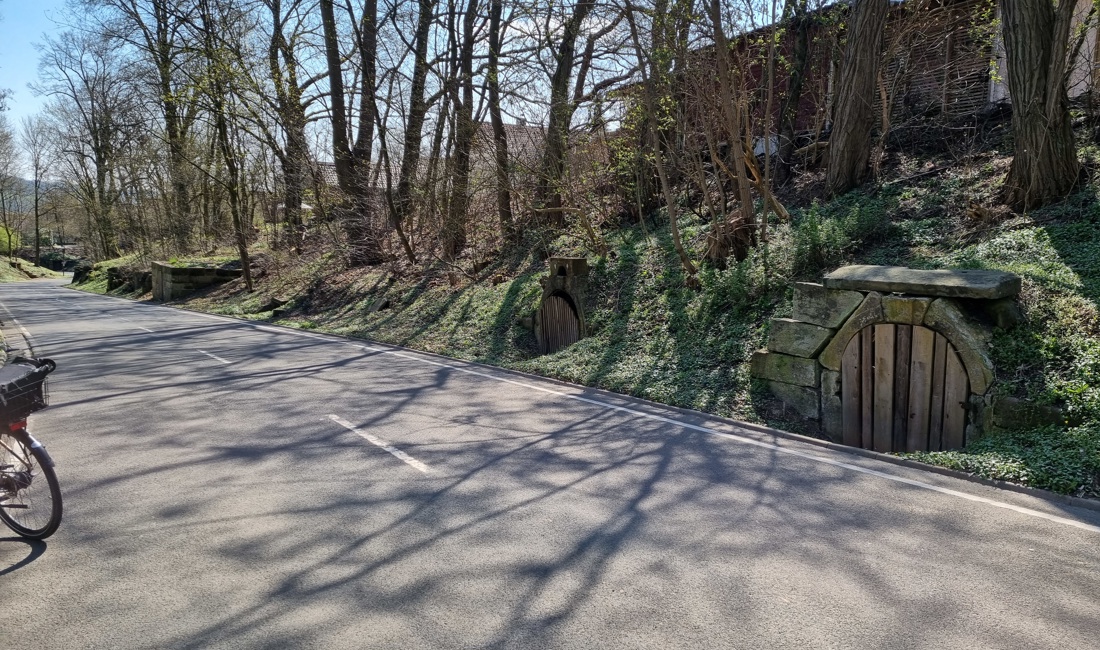
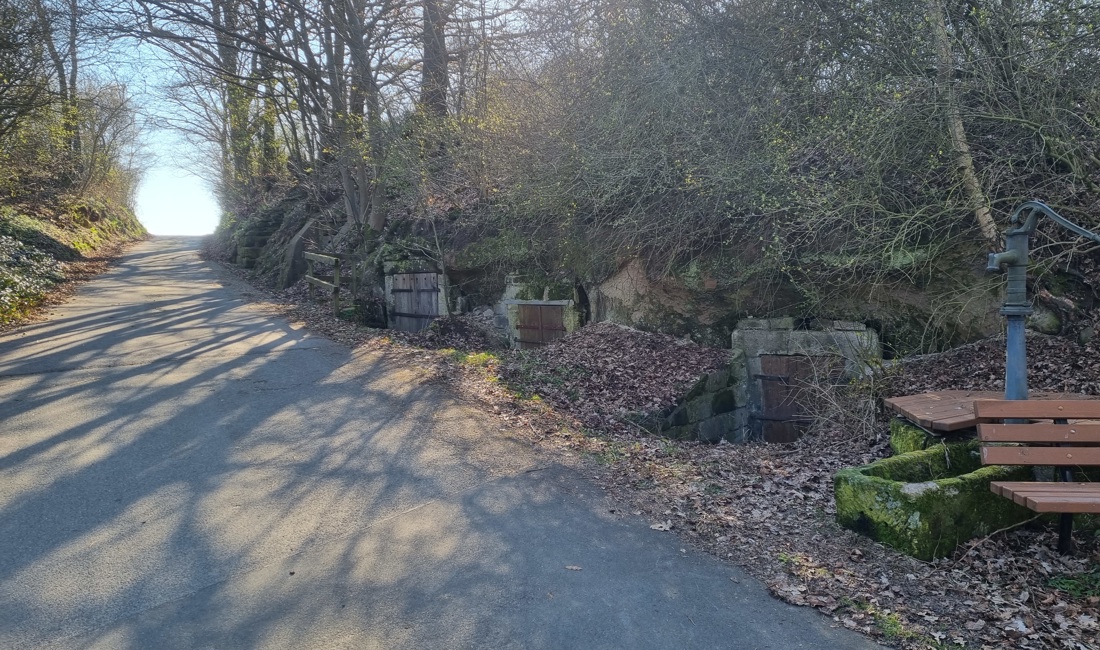
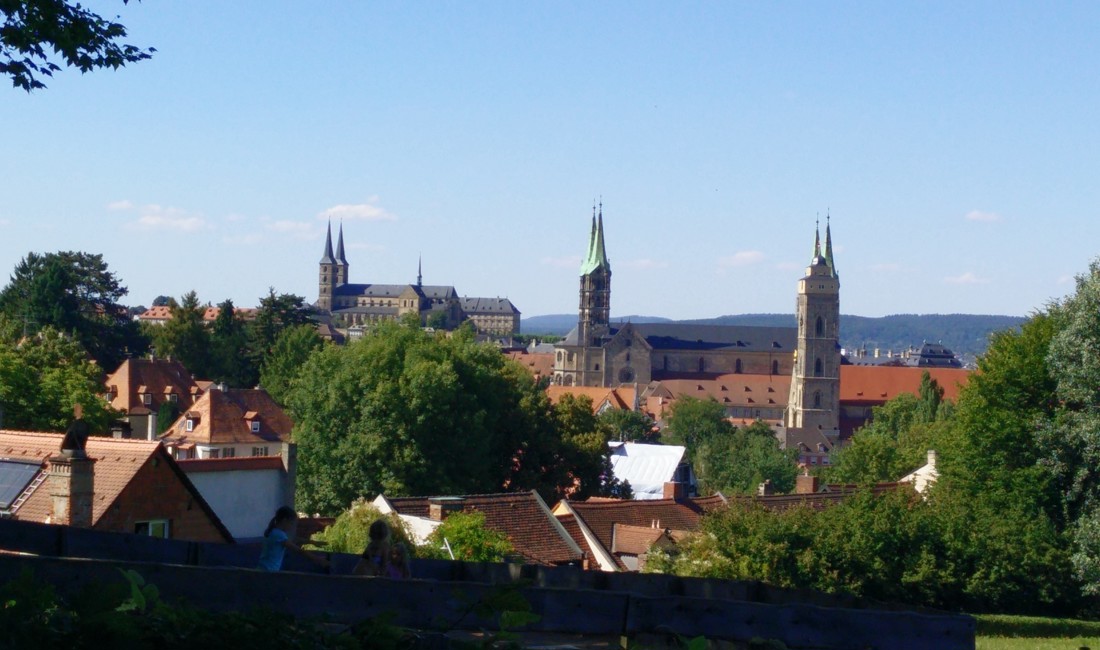
This is fantastic, and the private kellers remind me so much of a similar thing in Moravia, though there it is wine rather than beer, but basically the same idea.